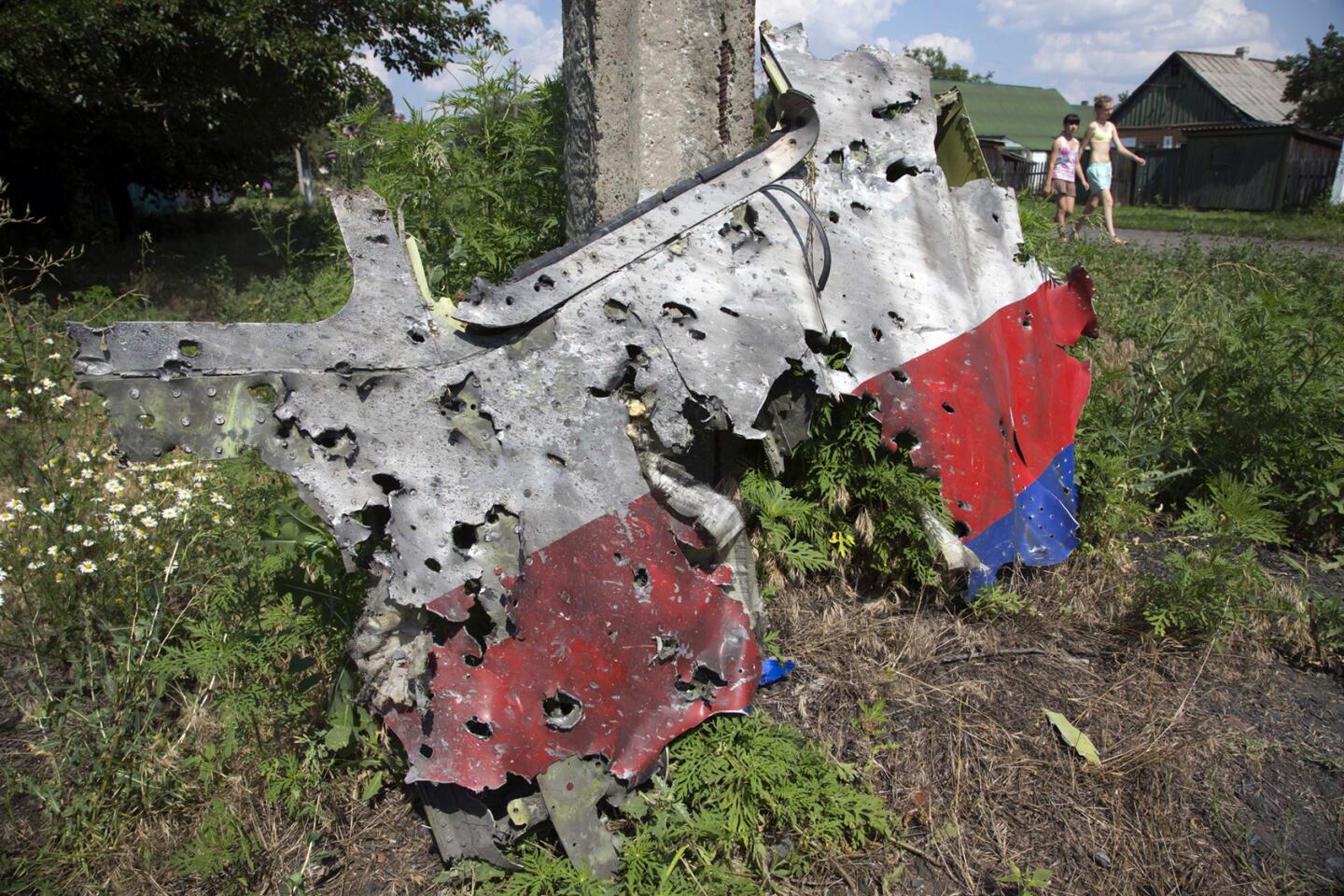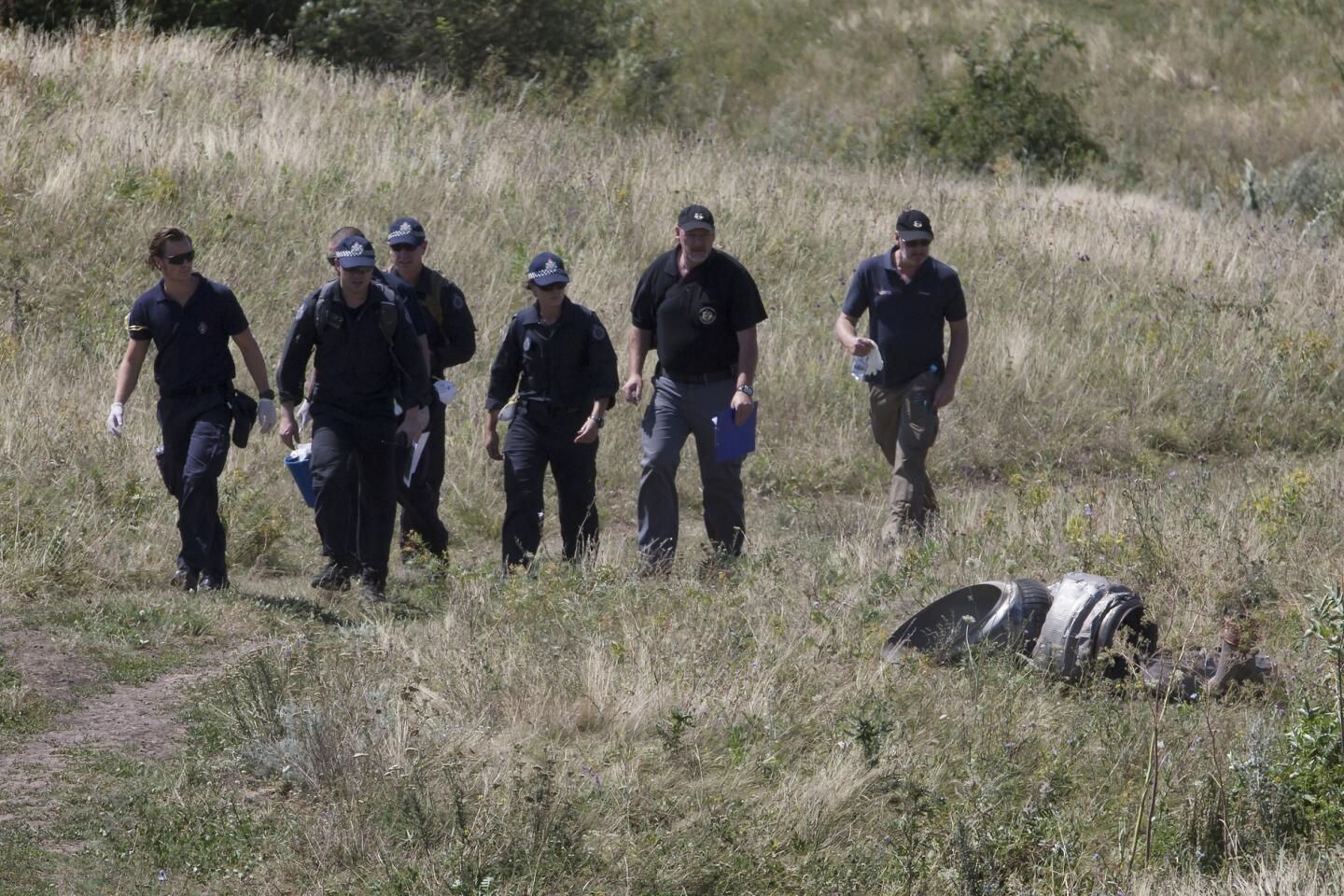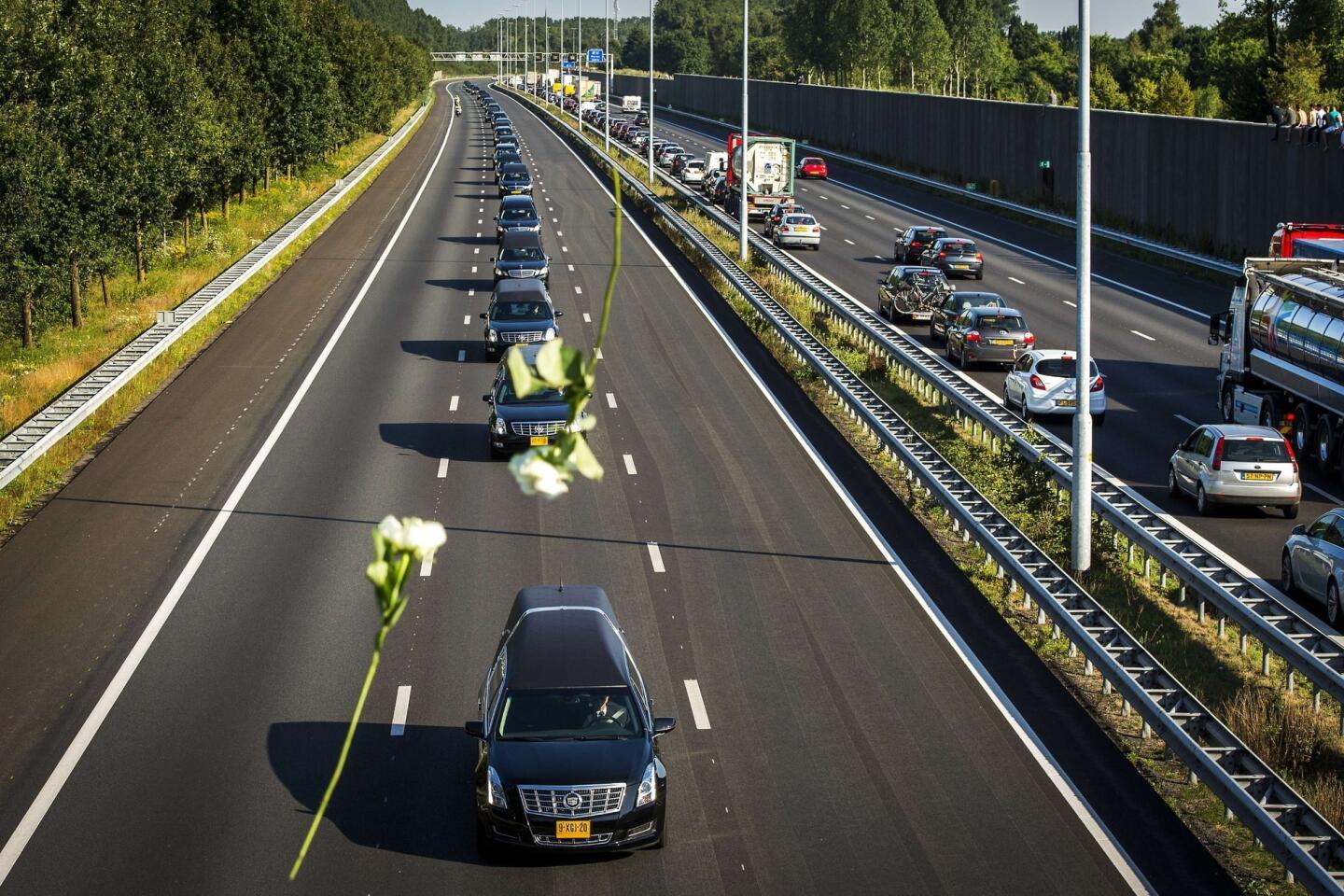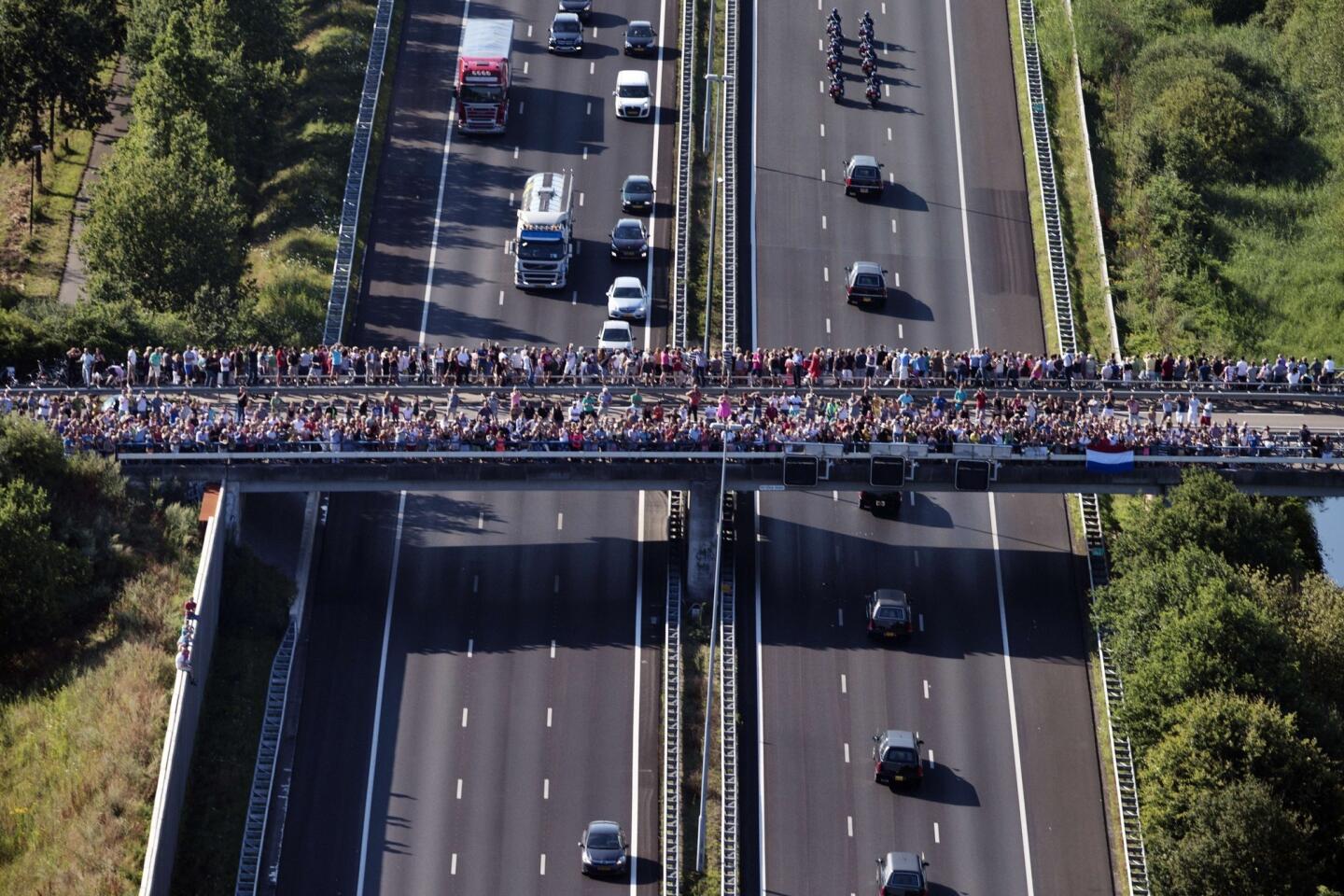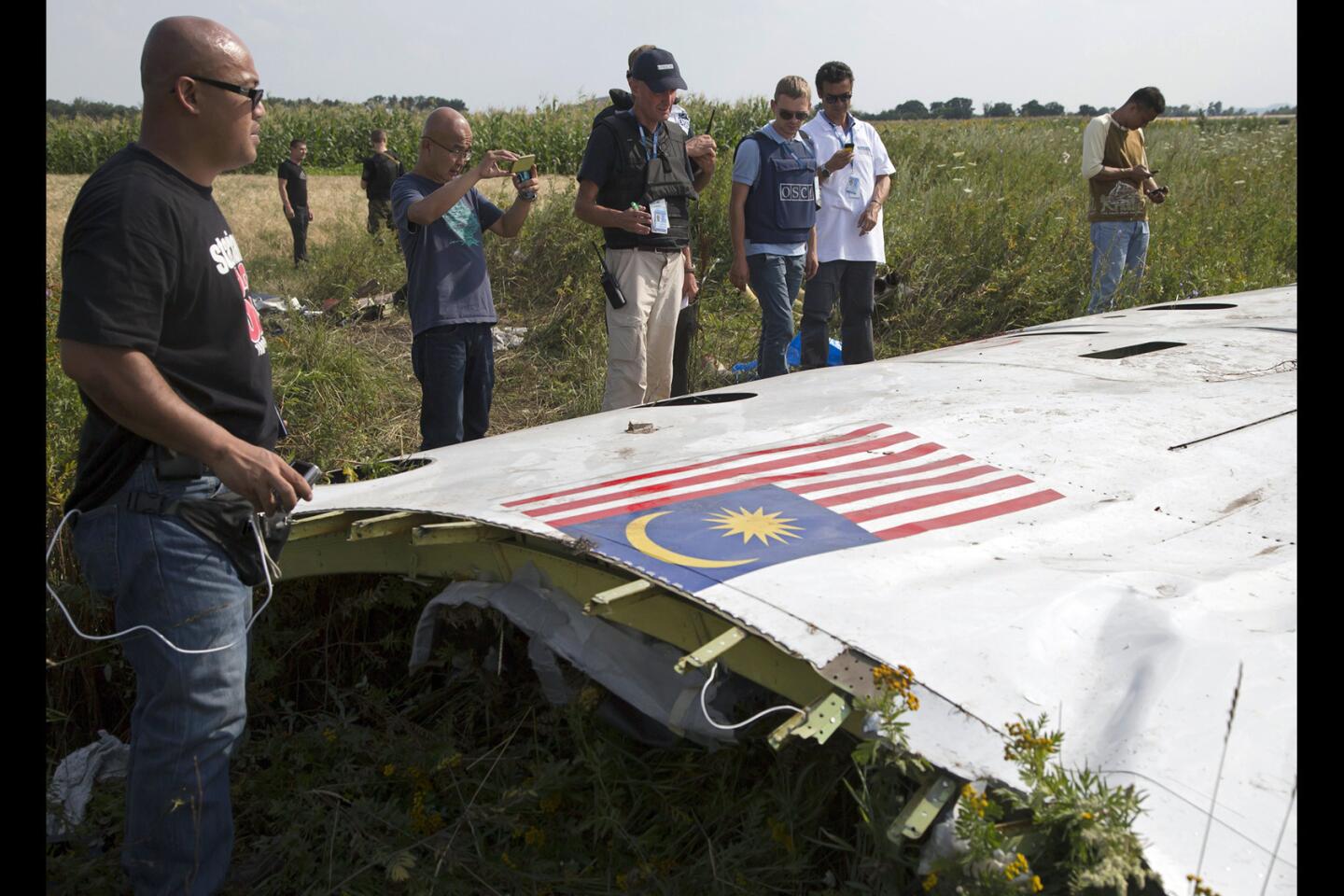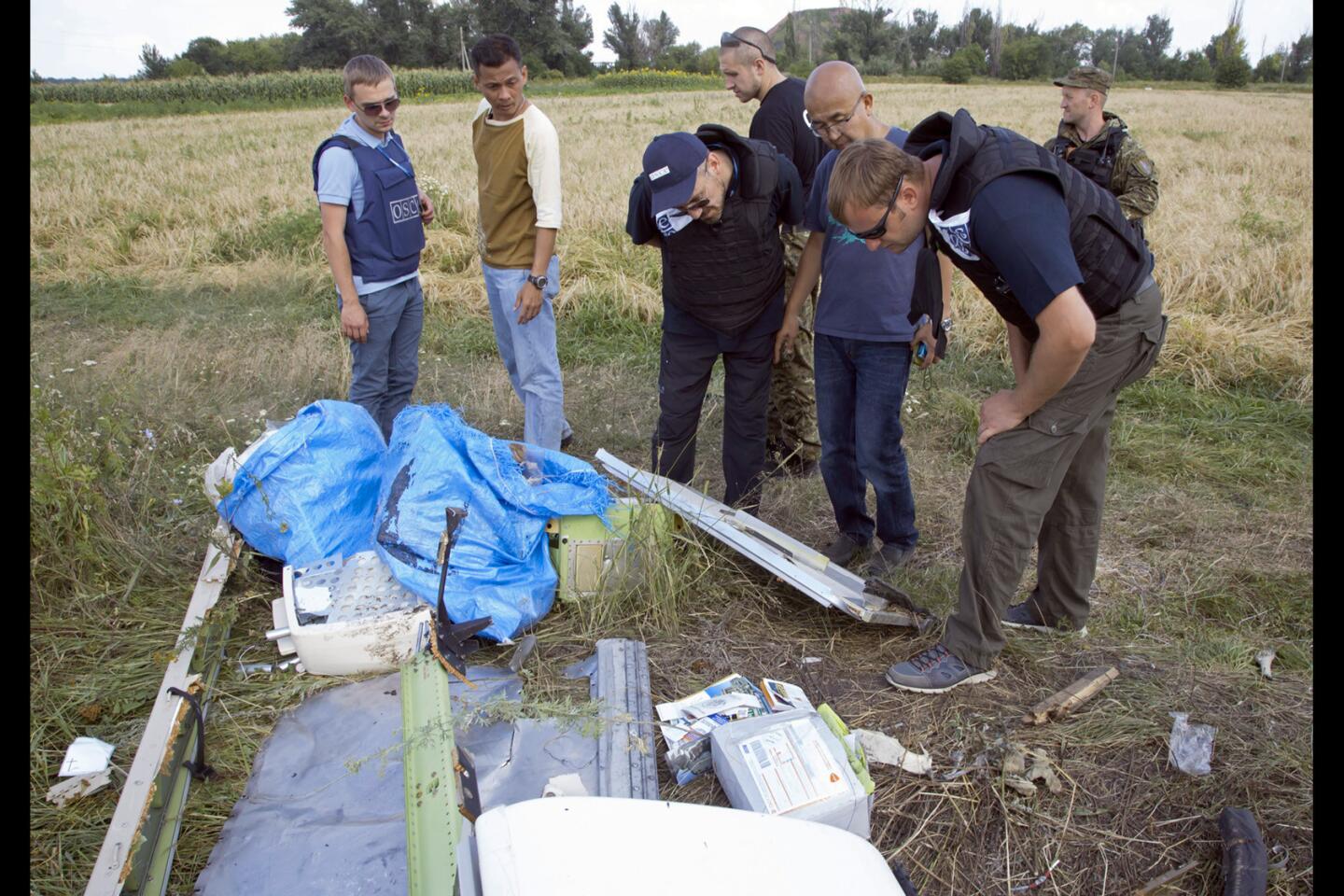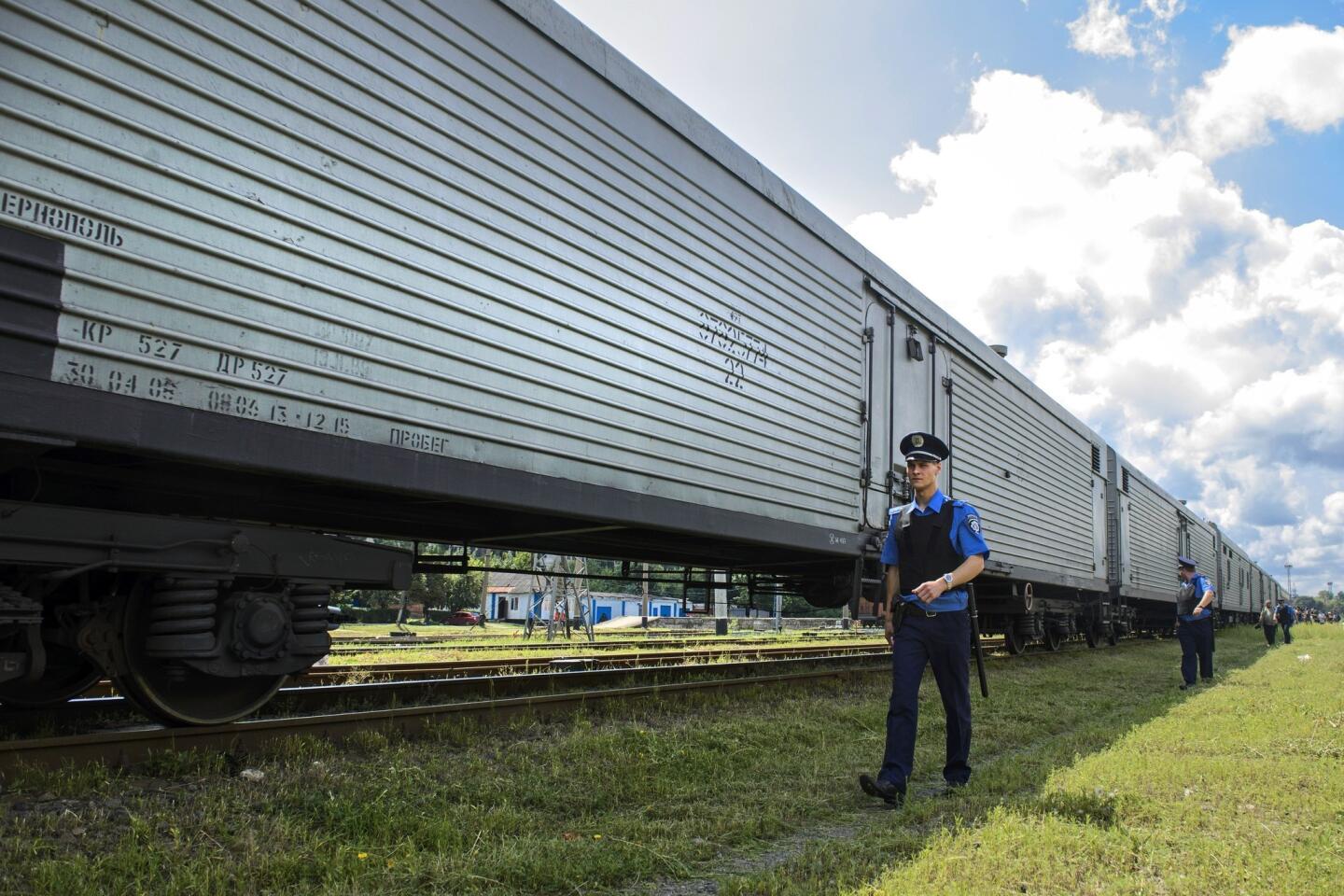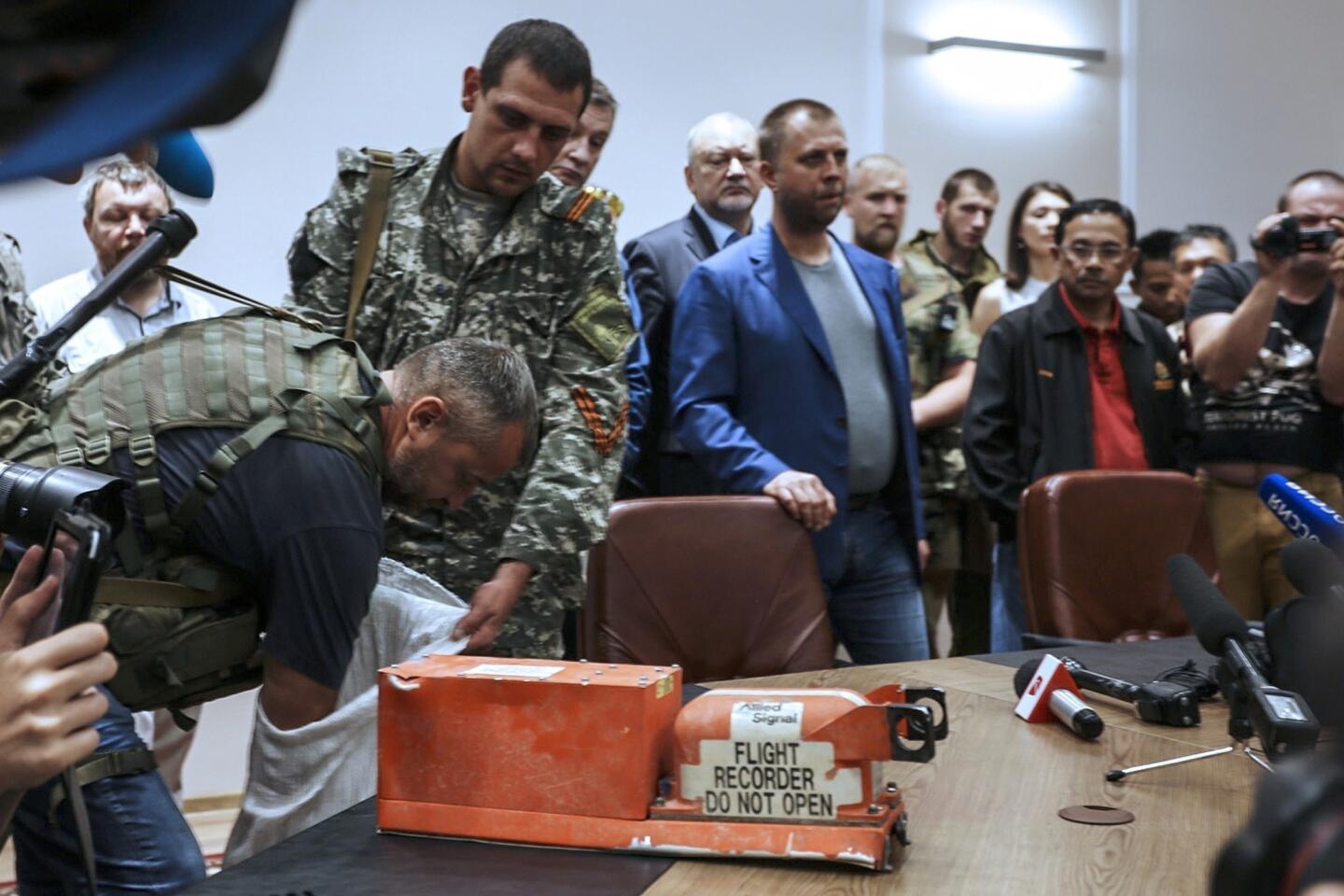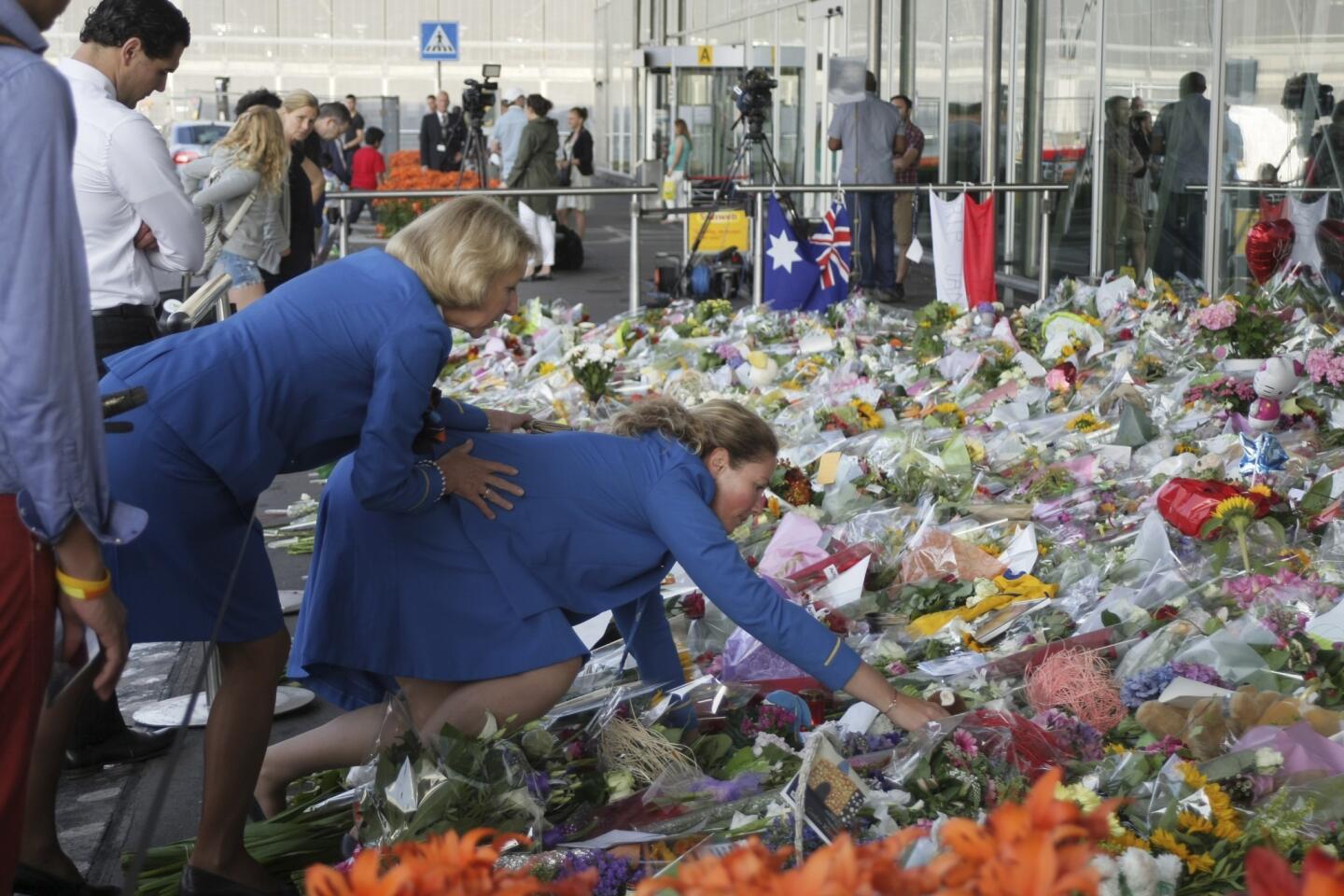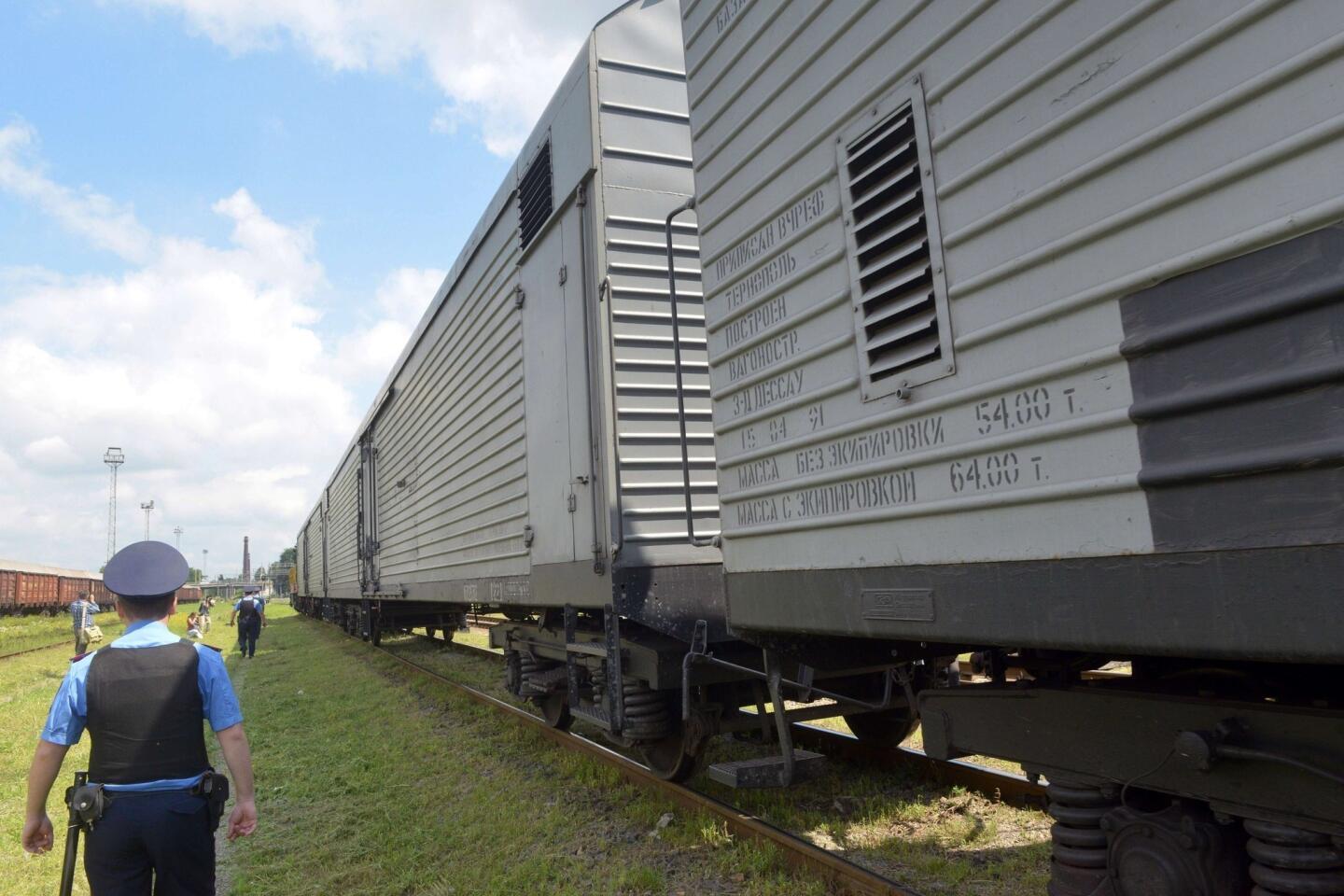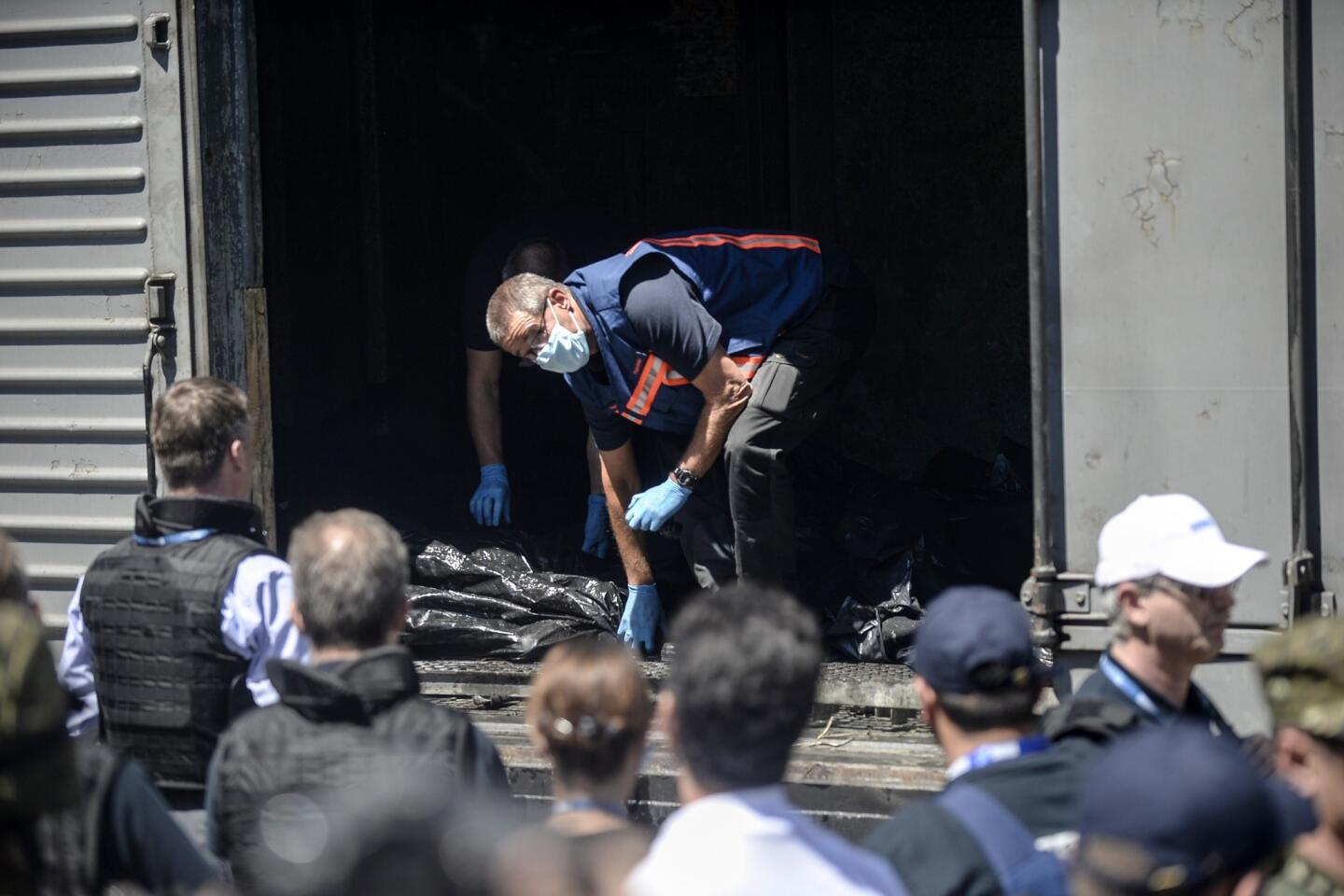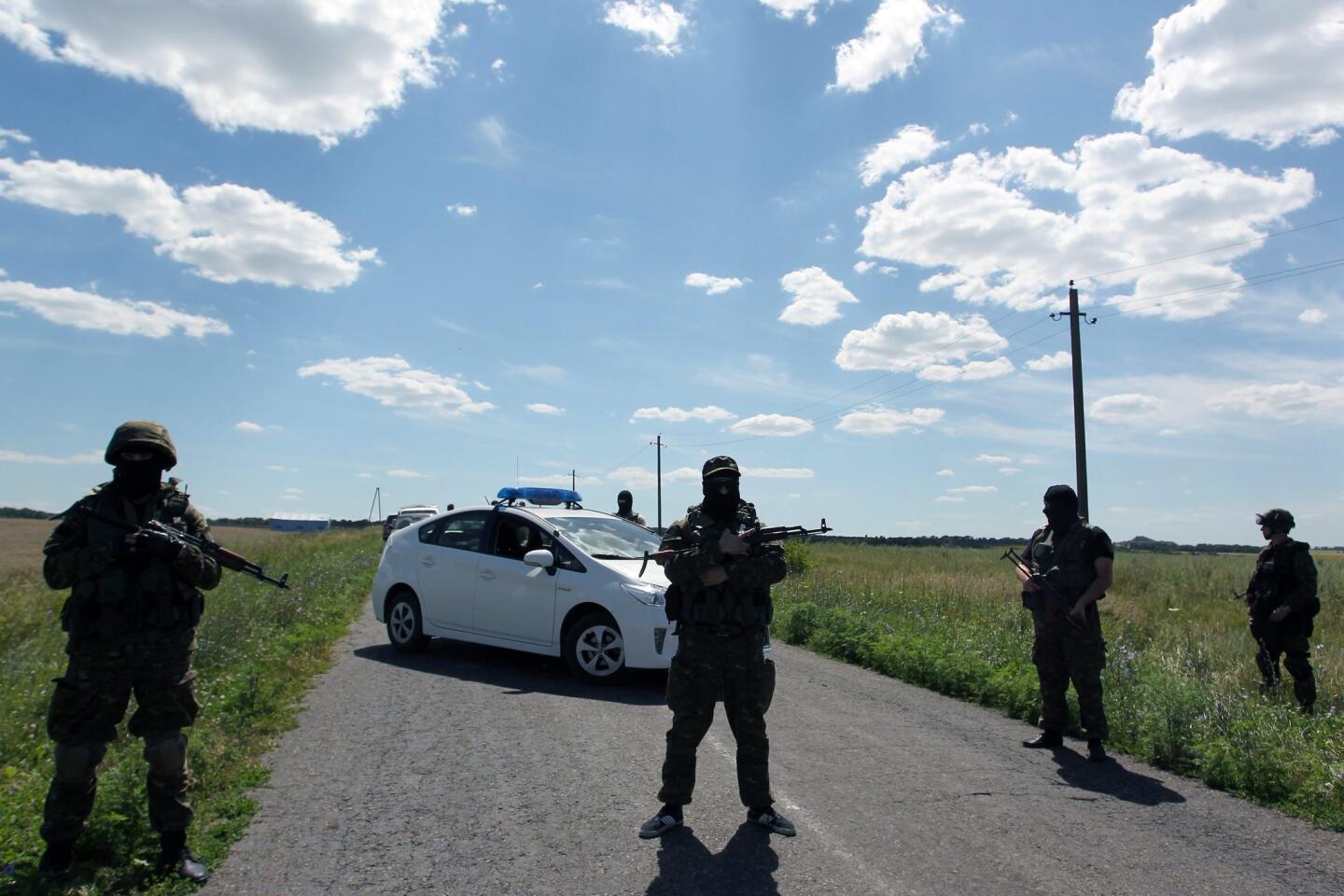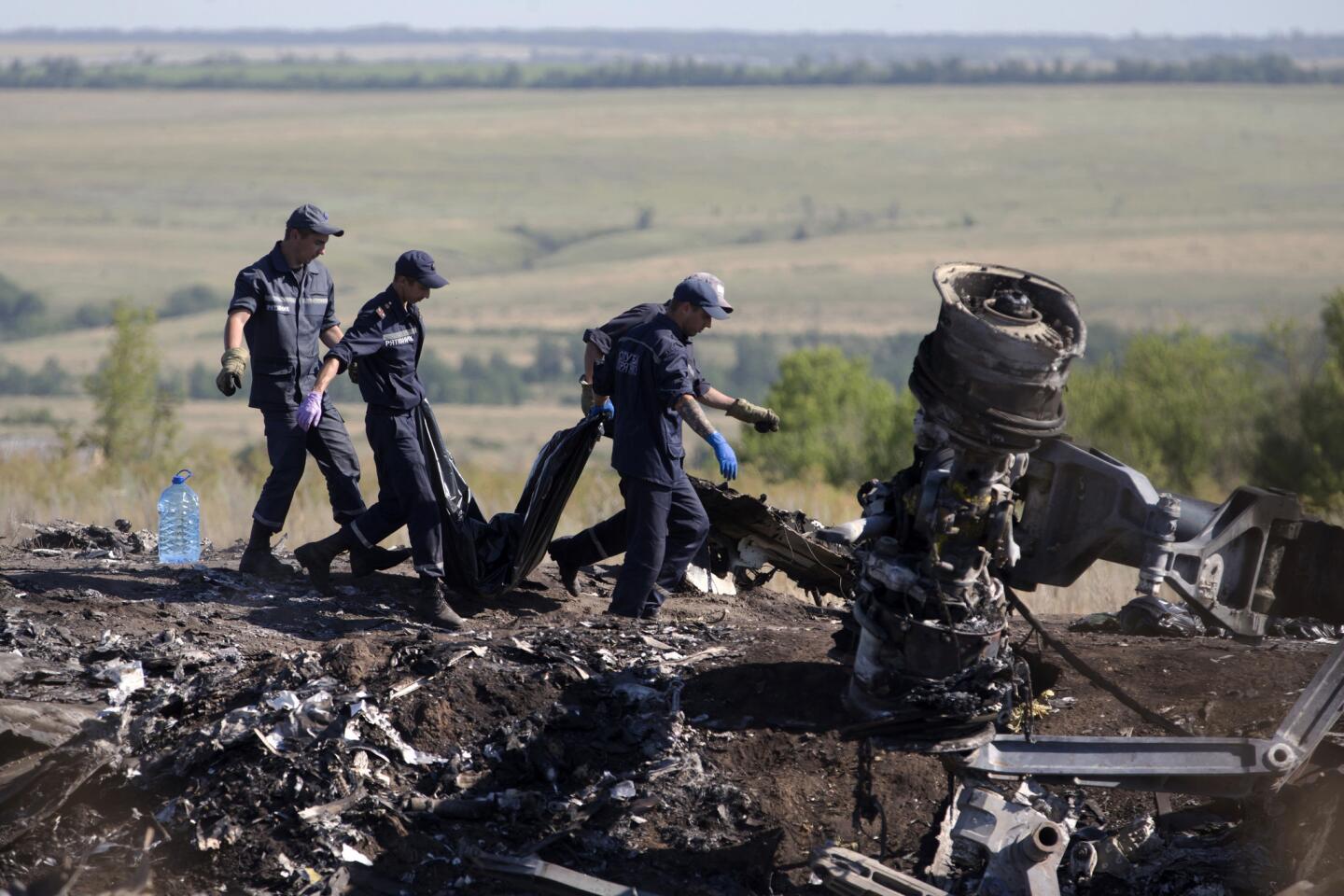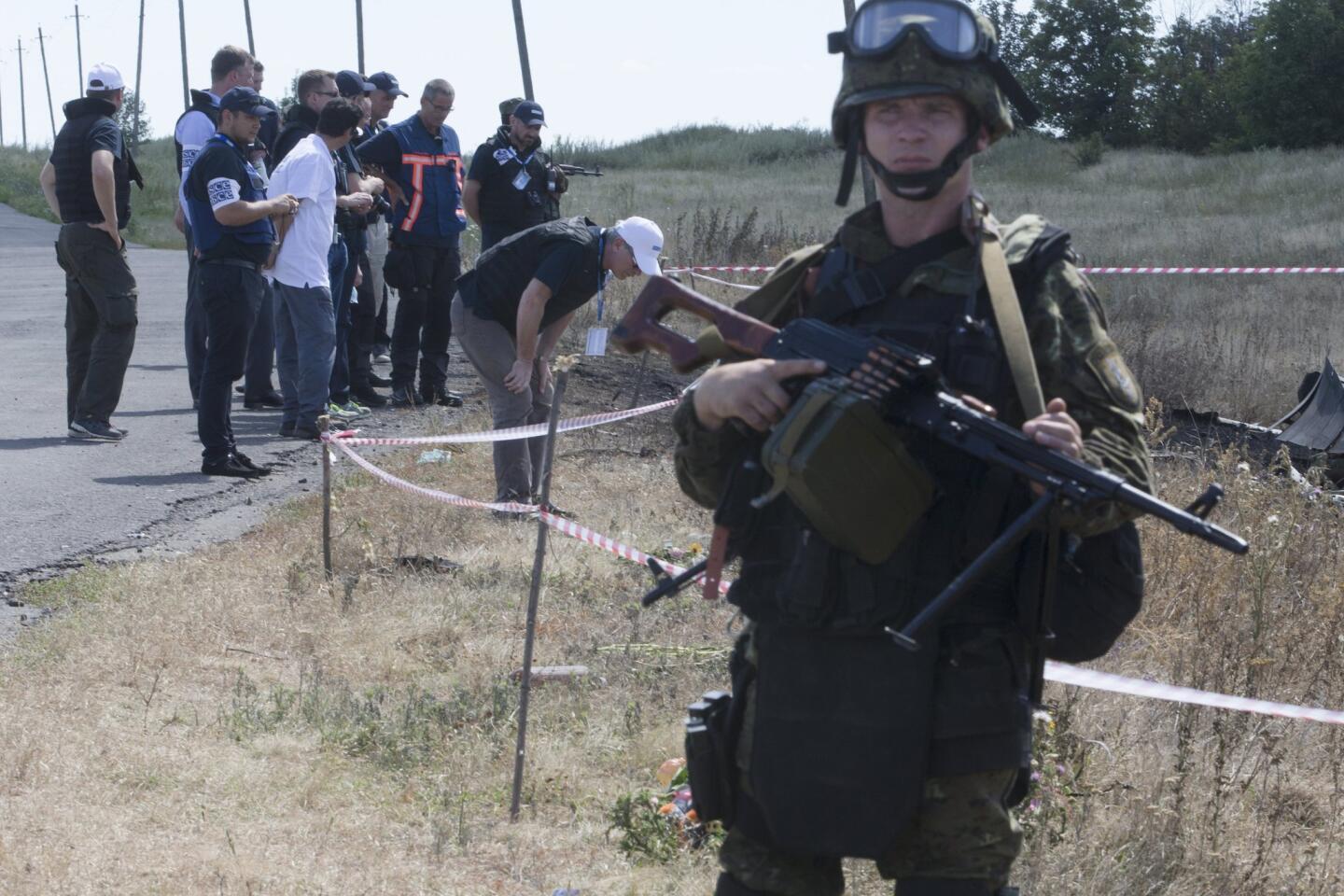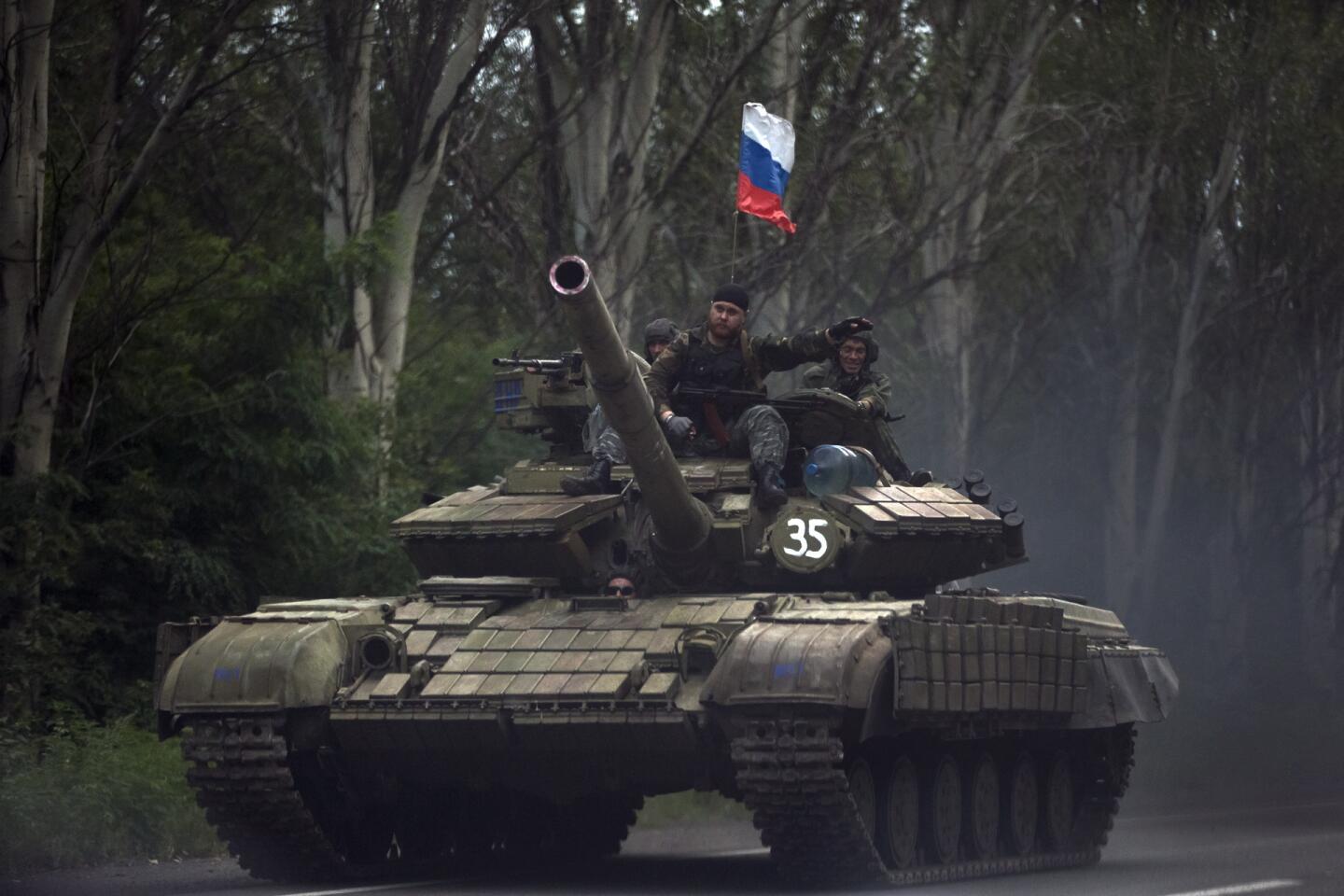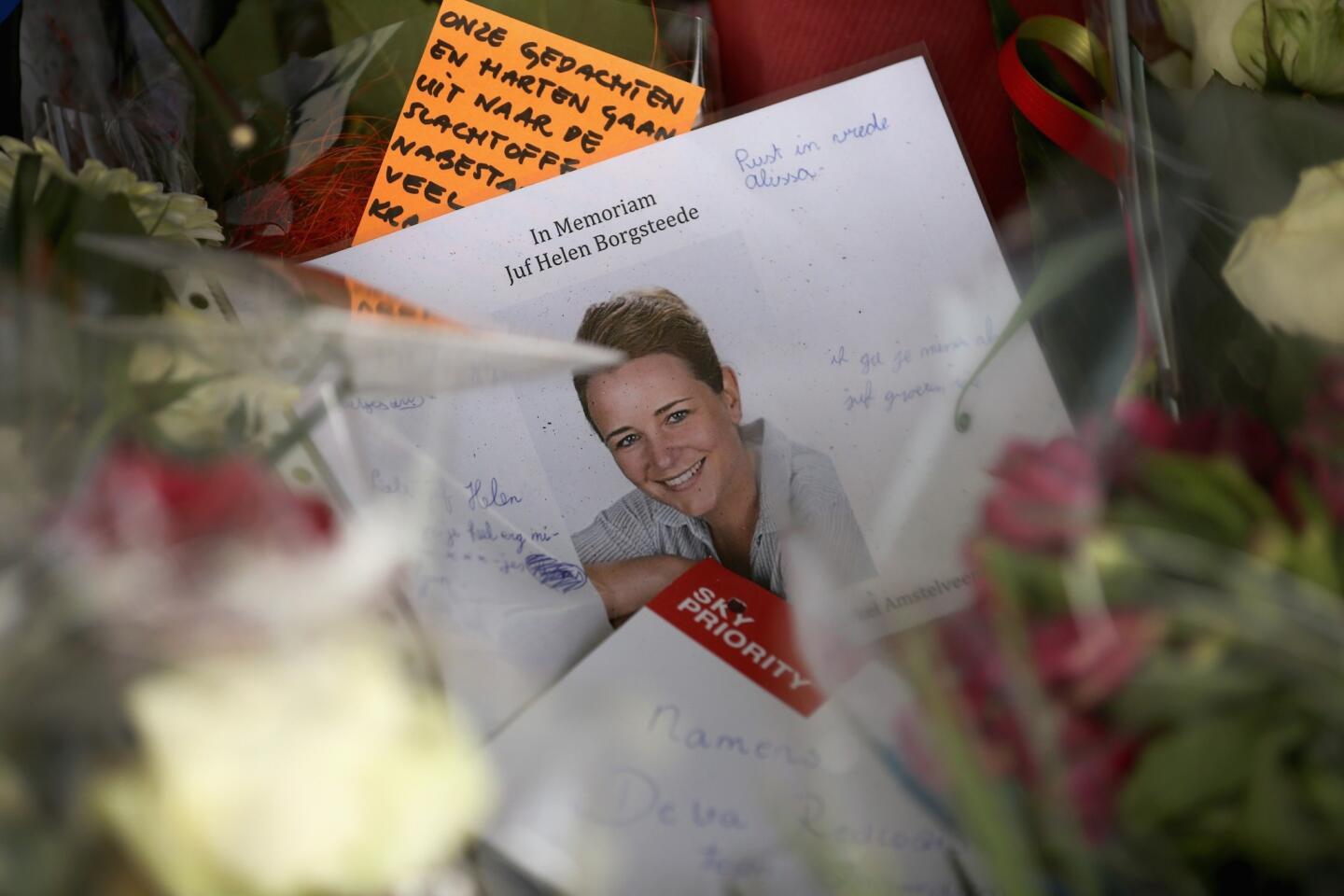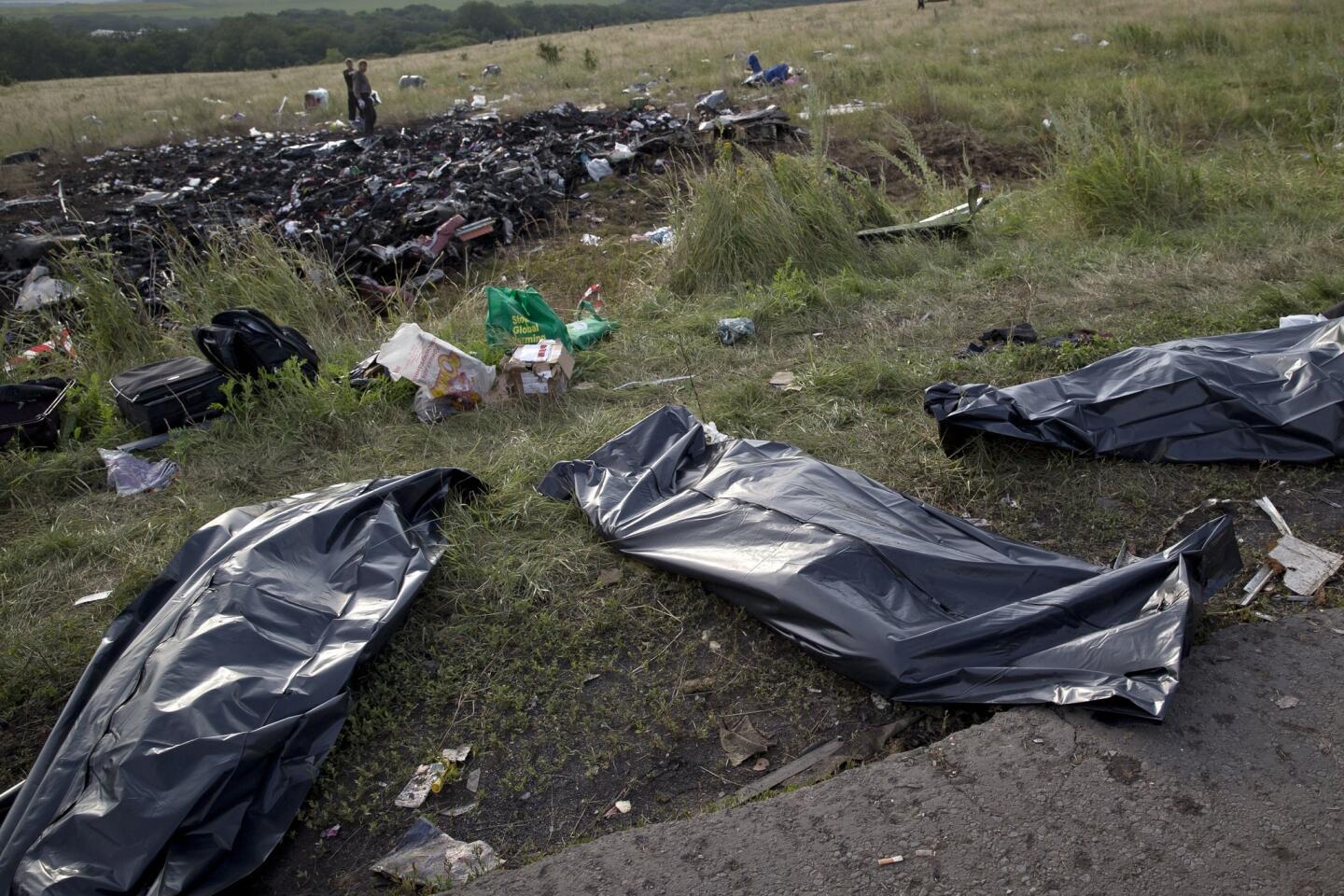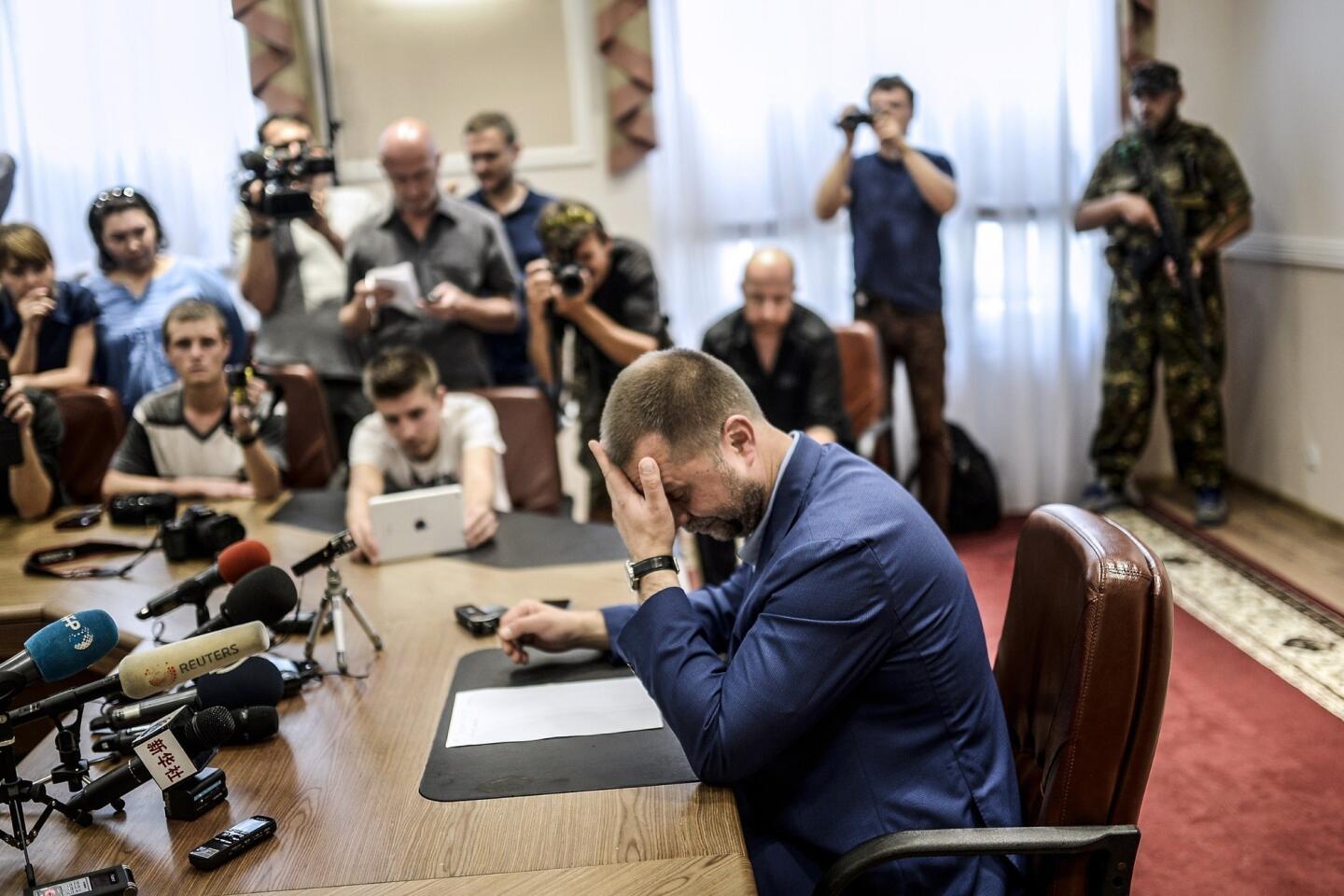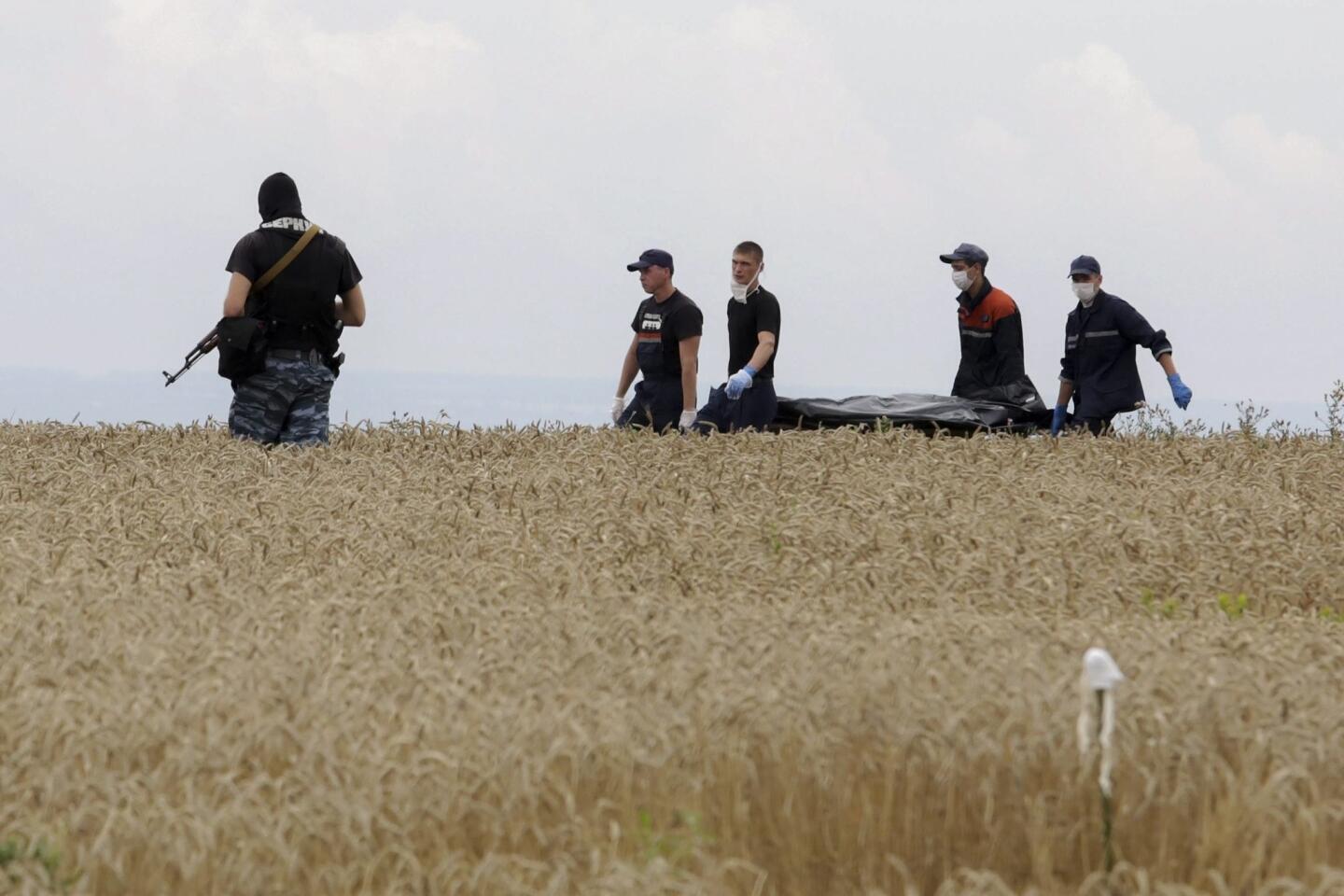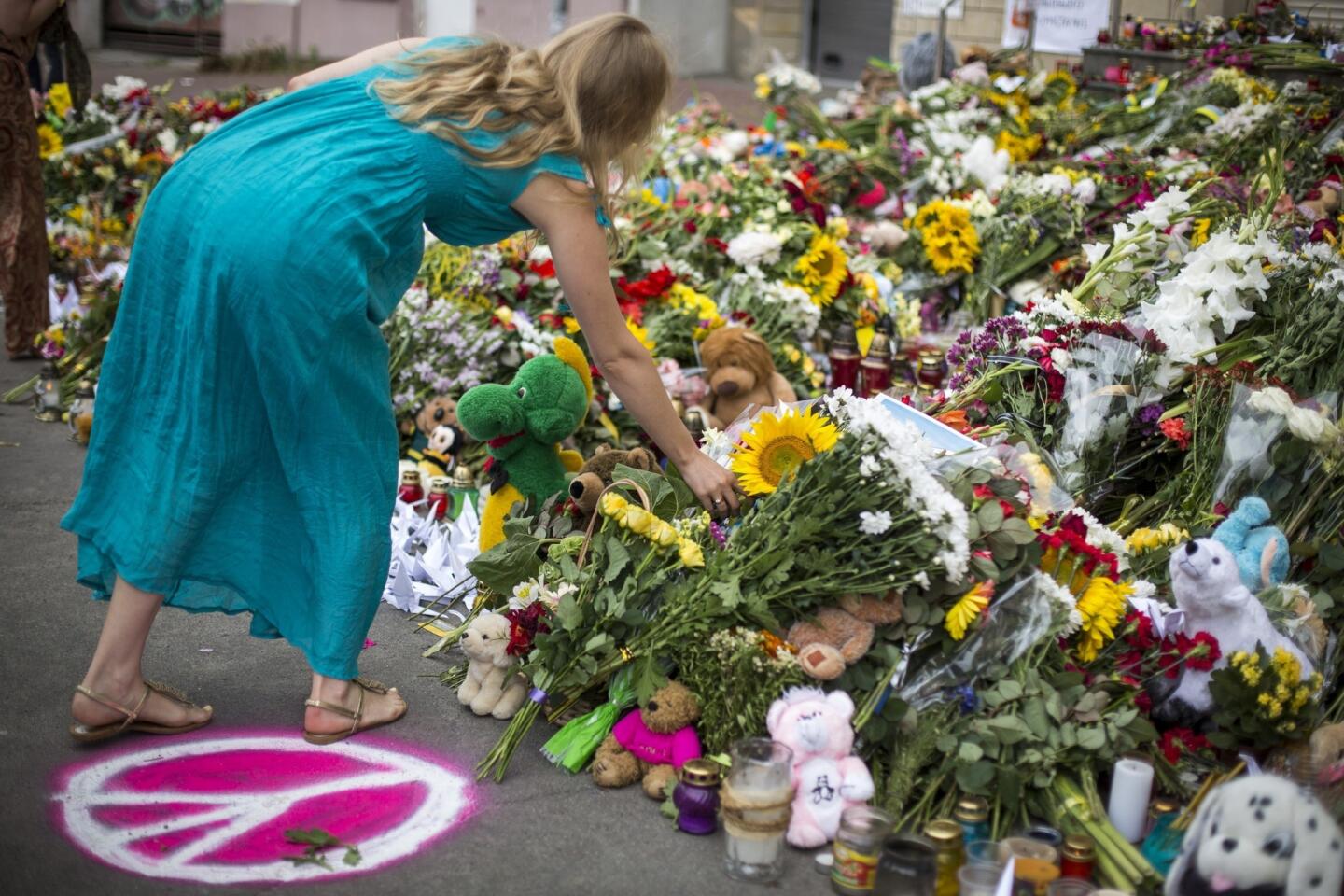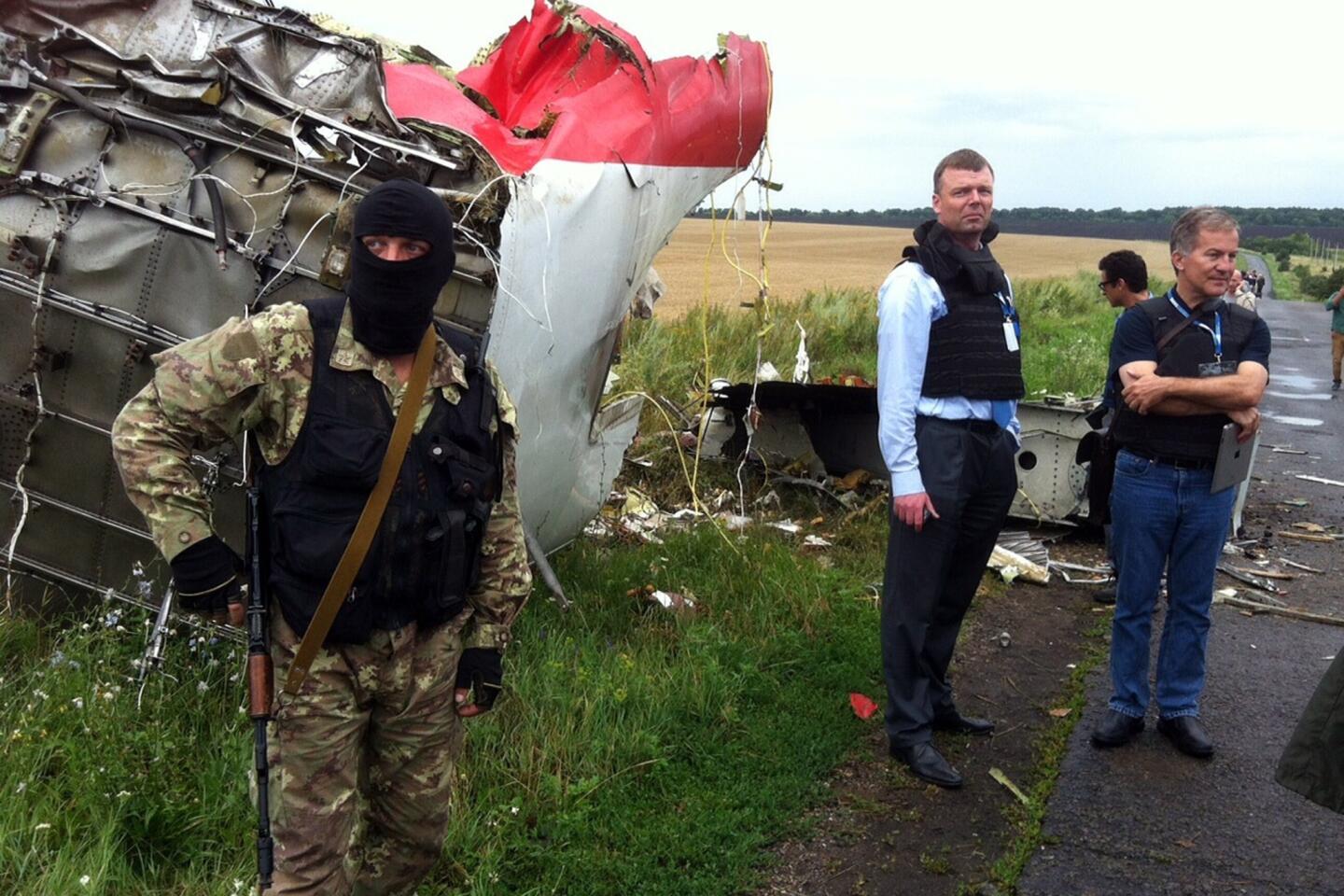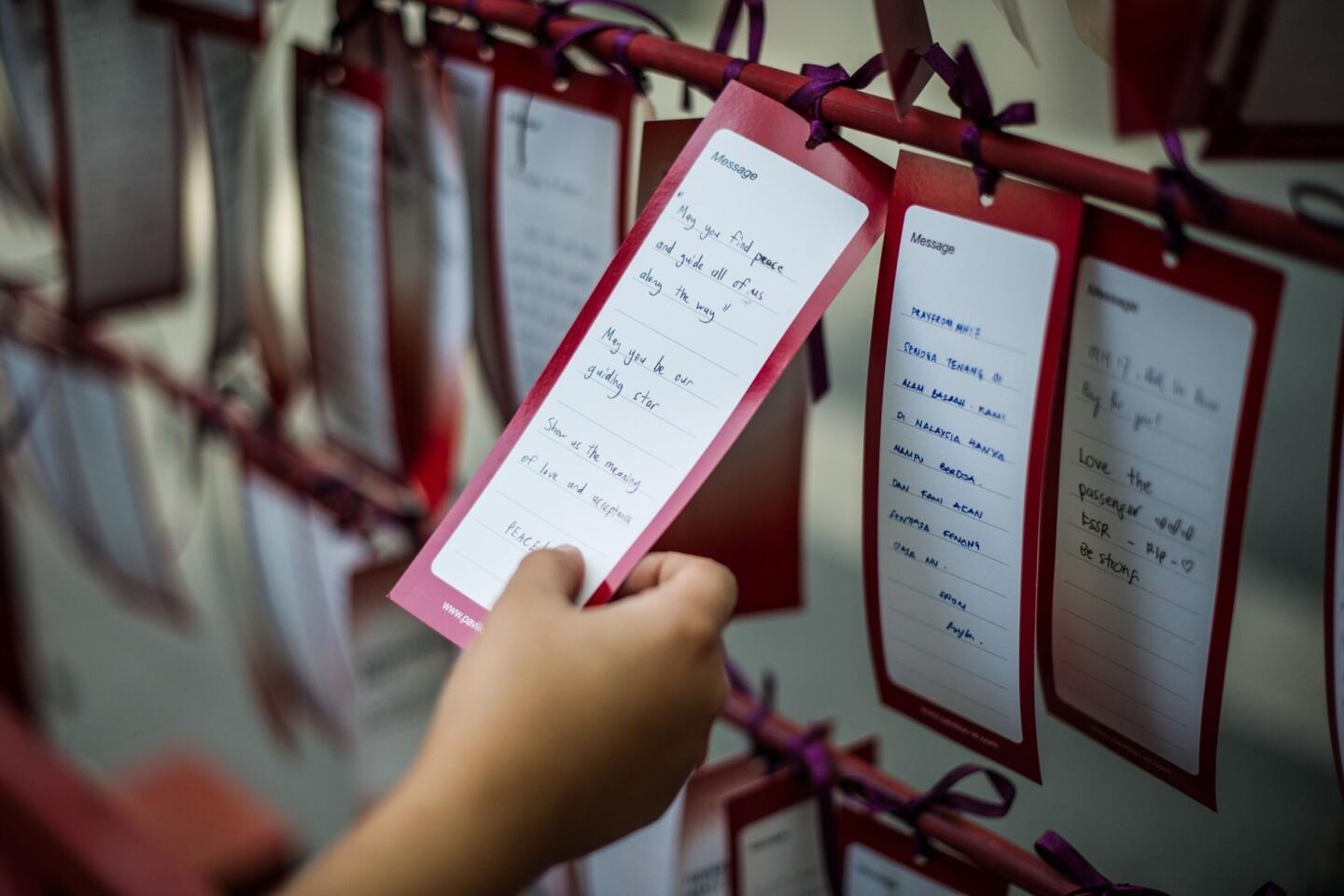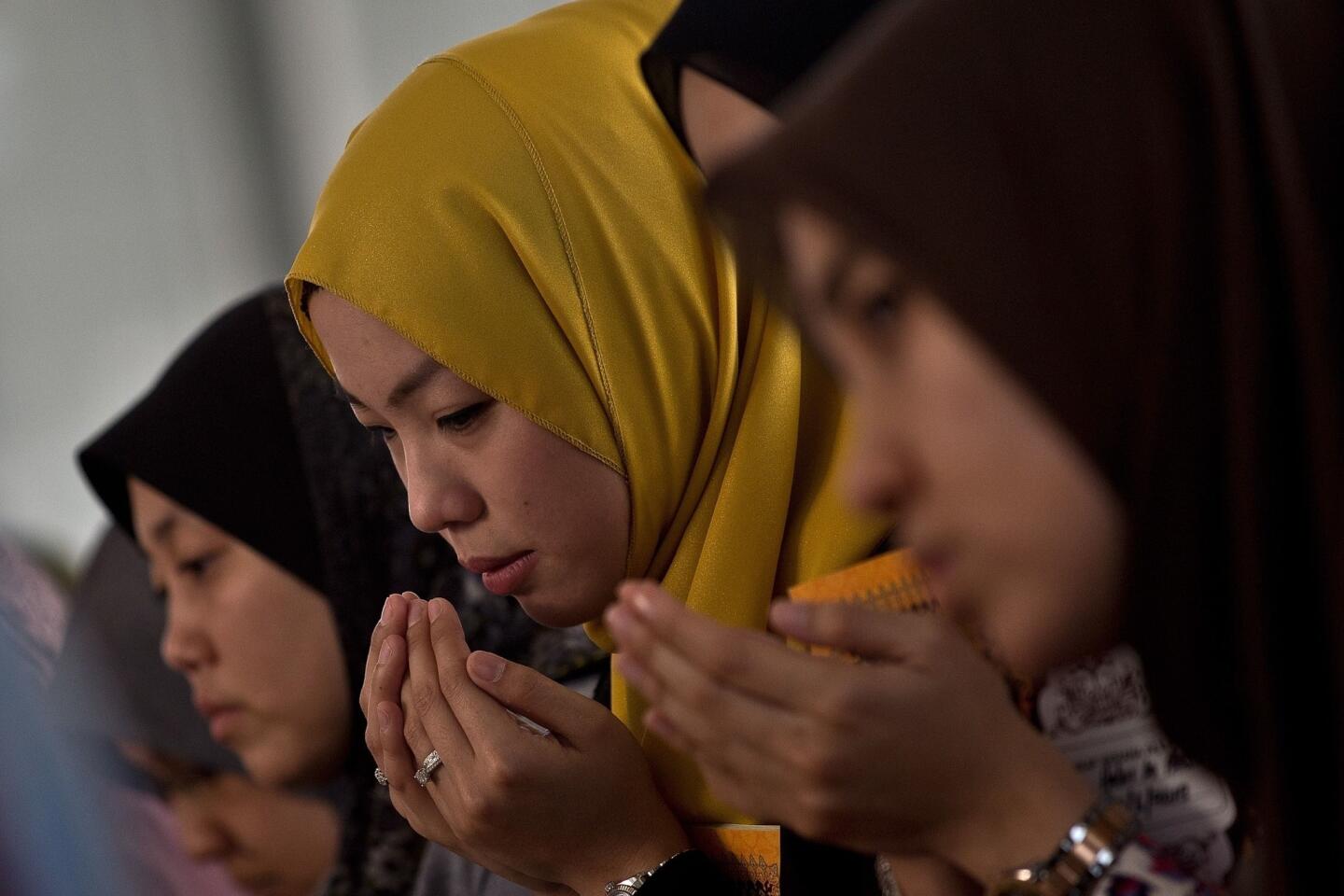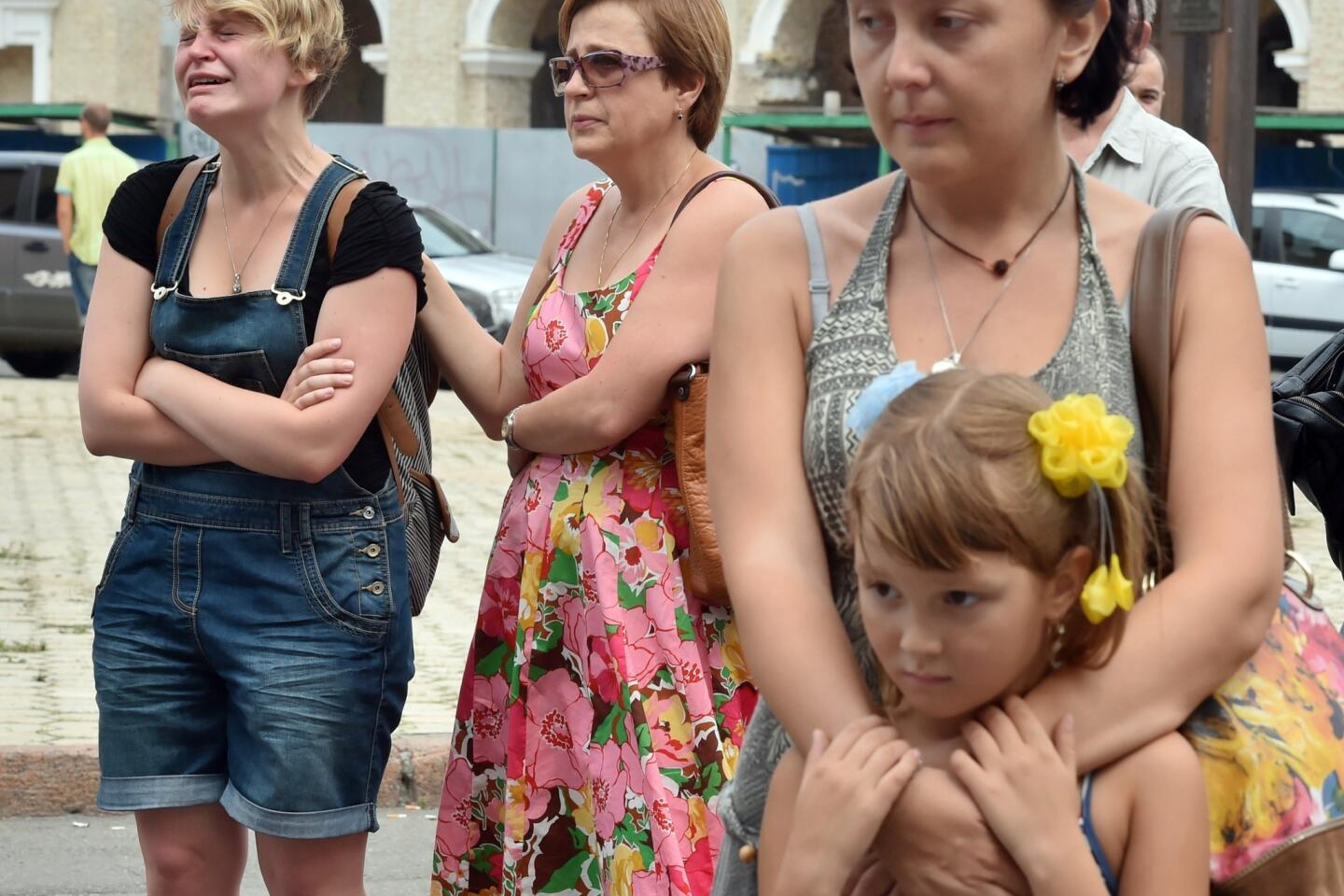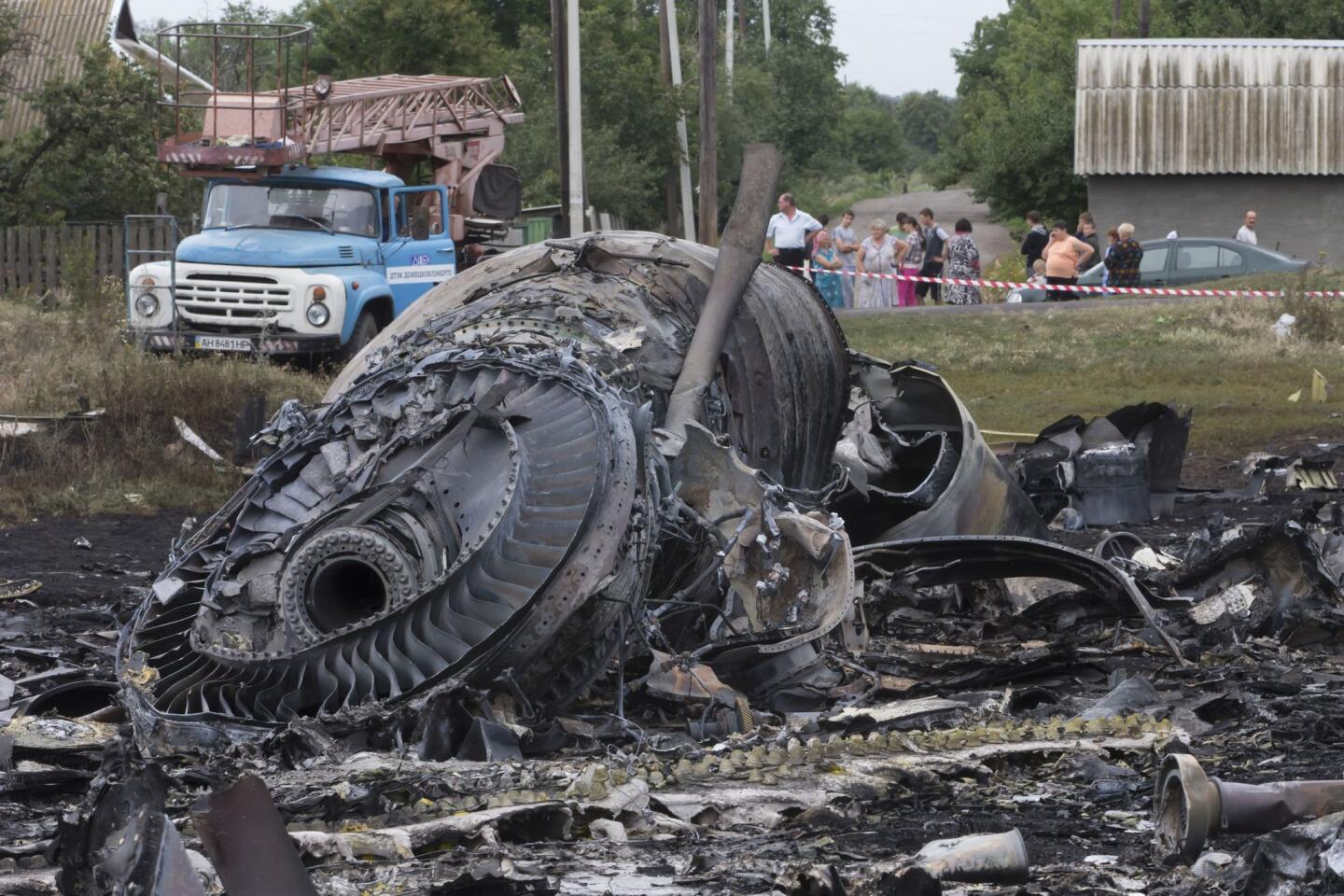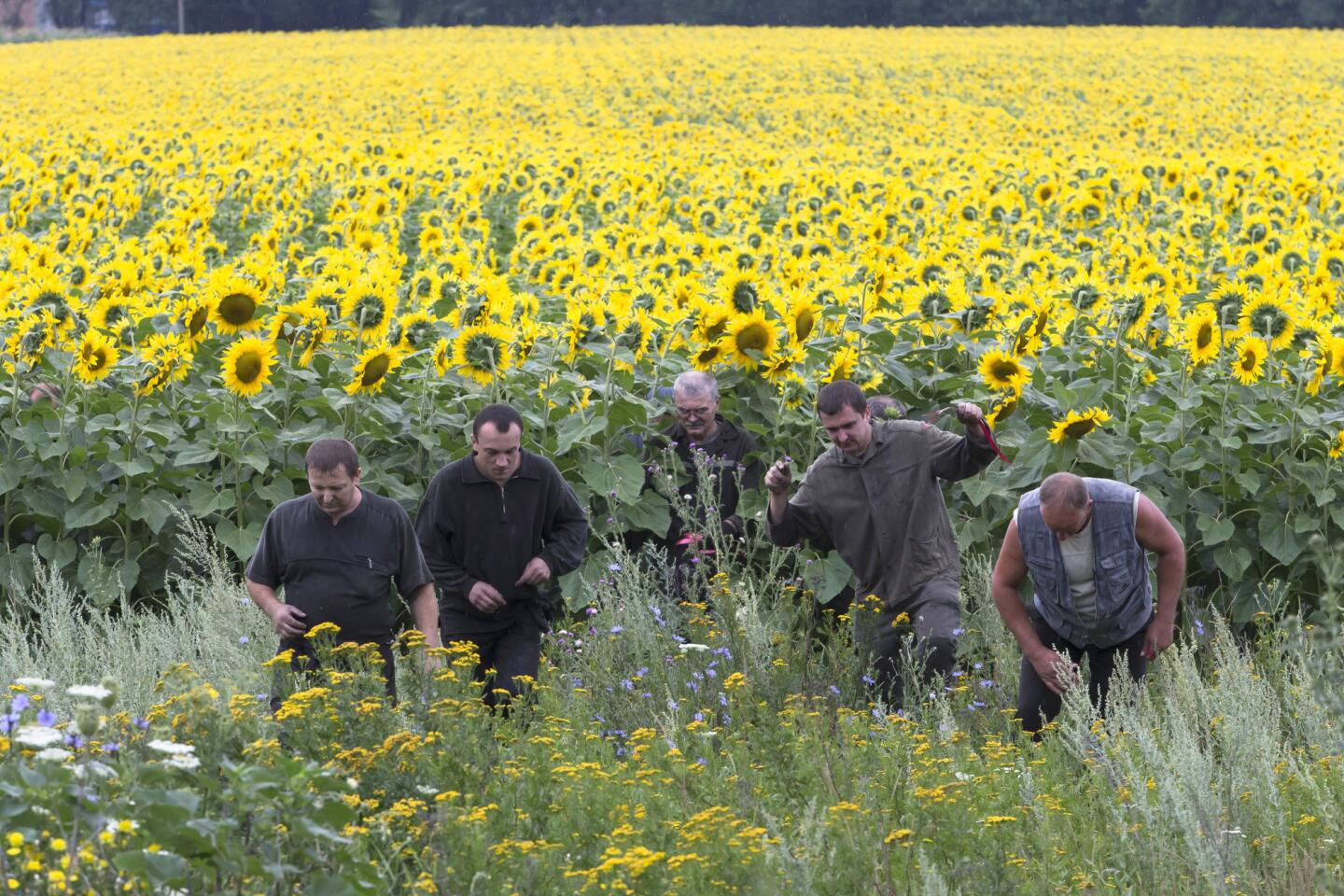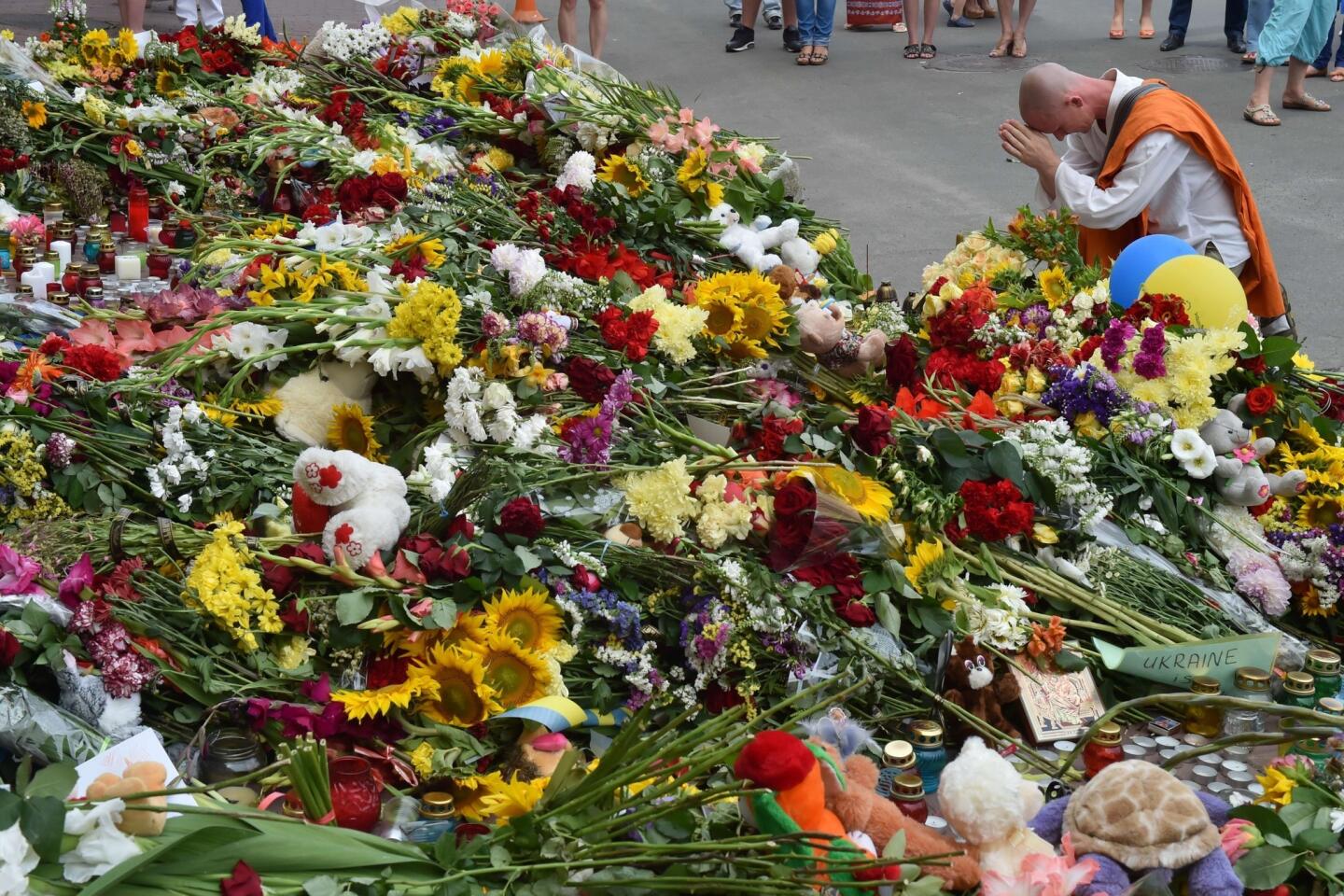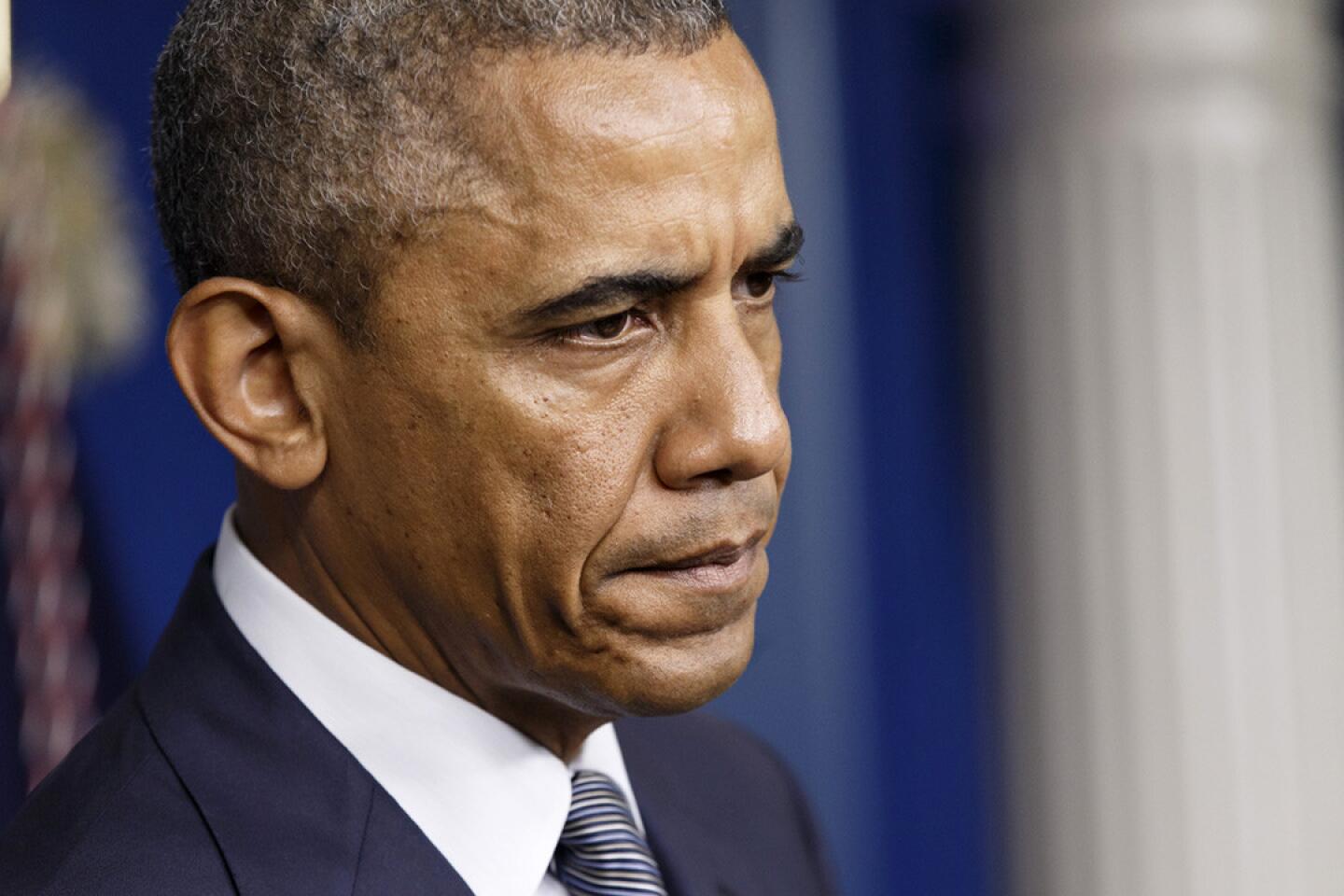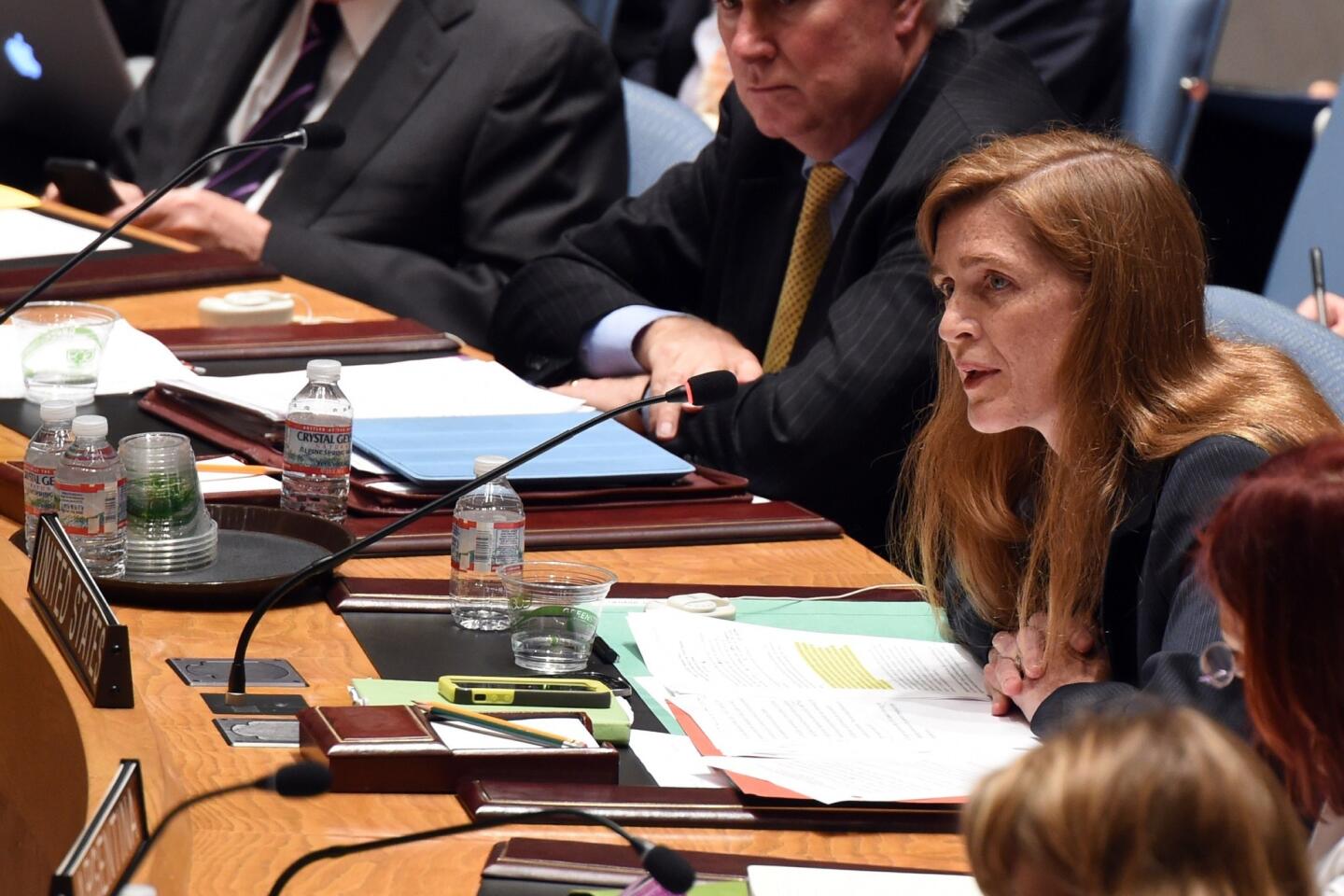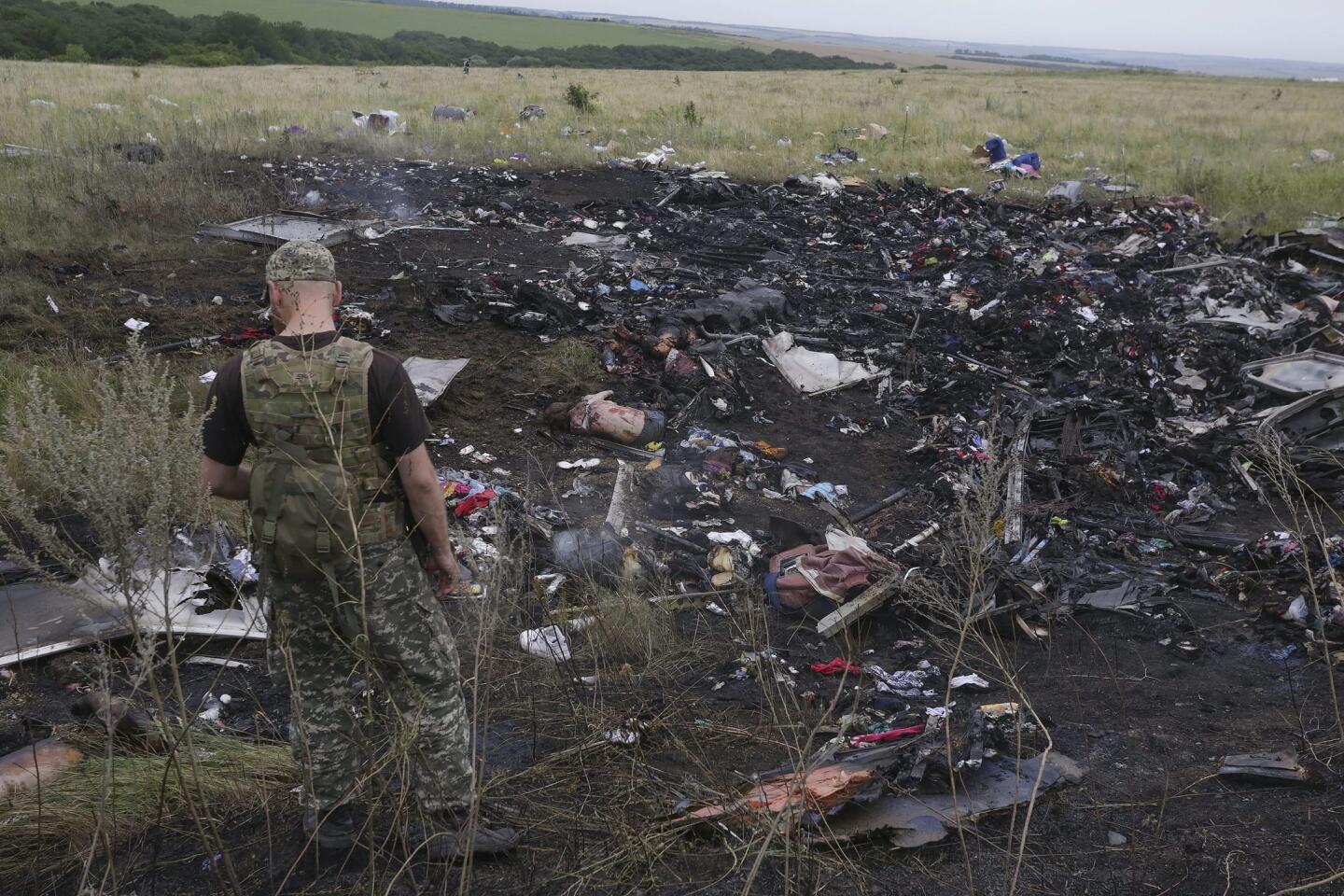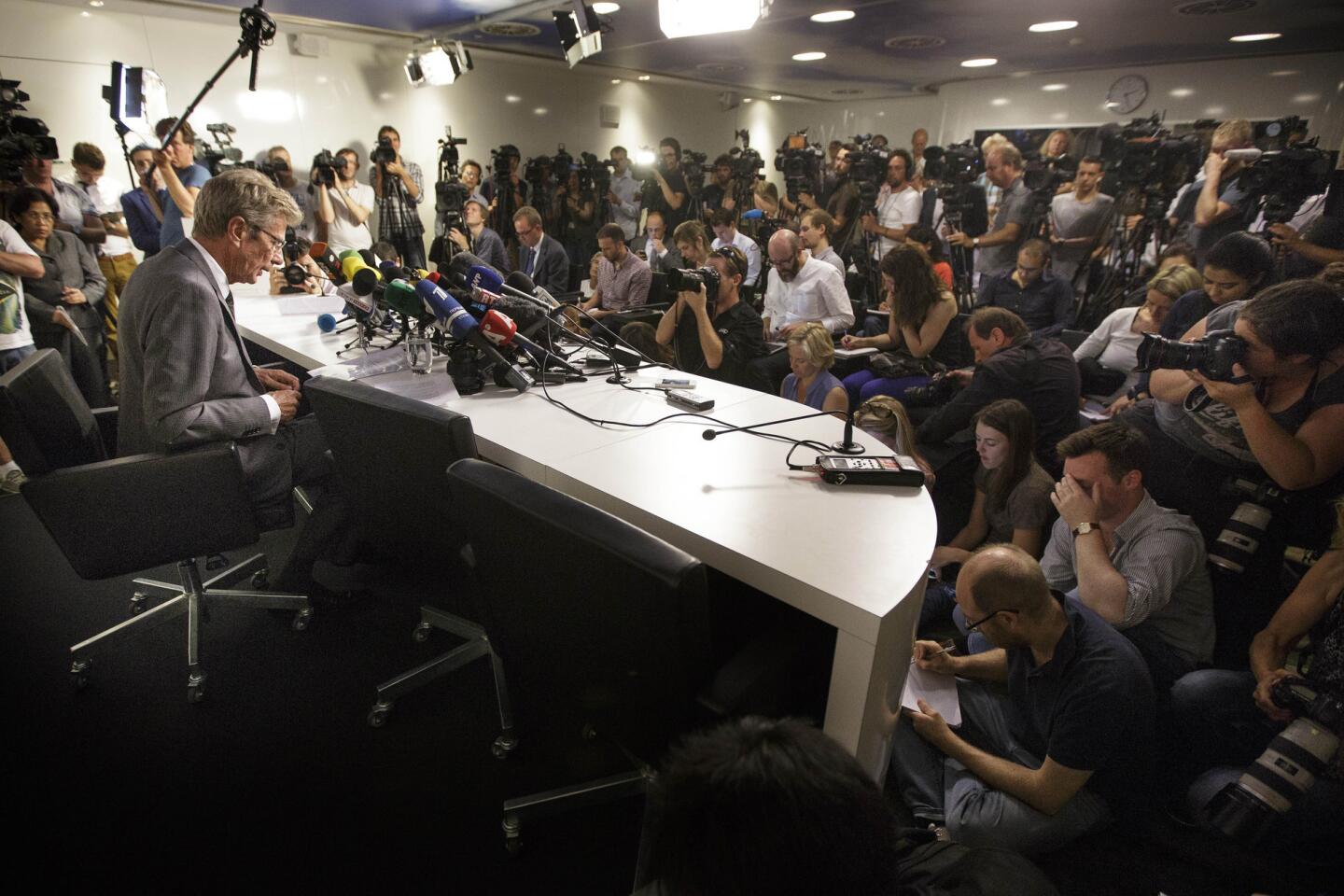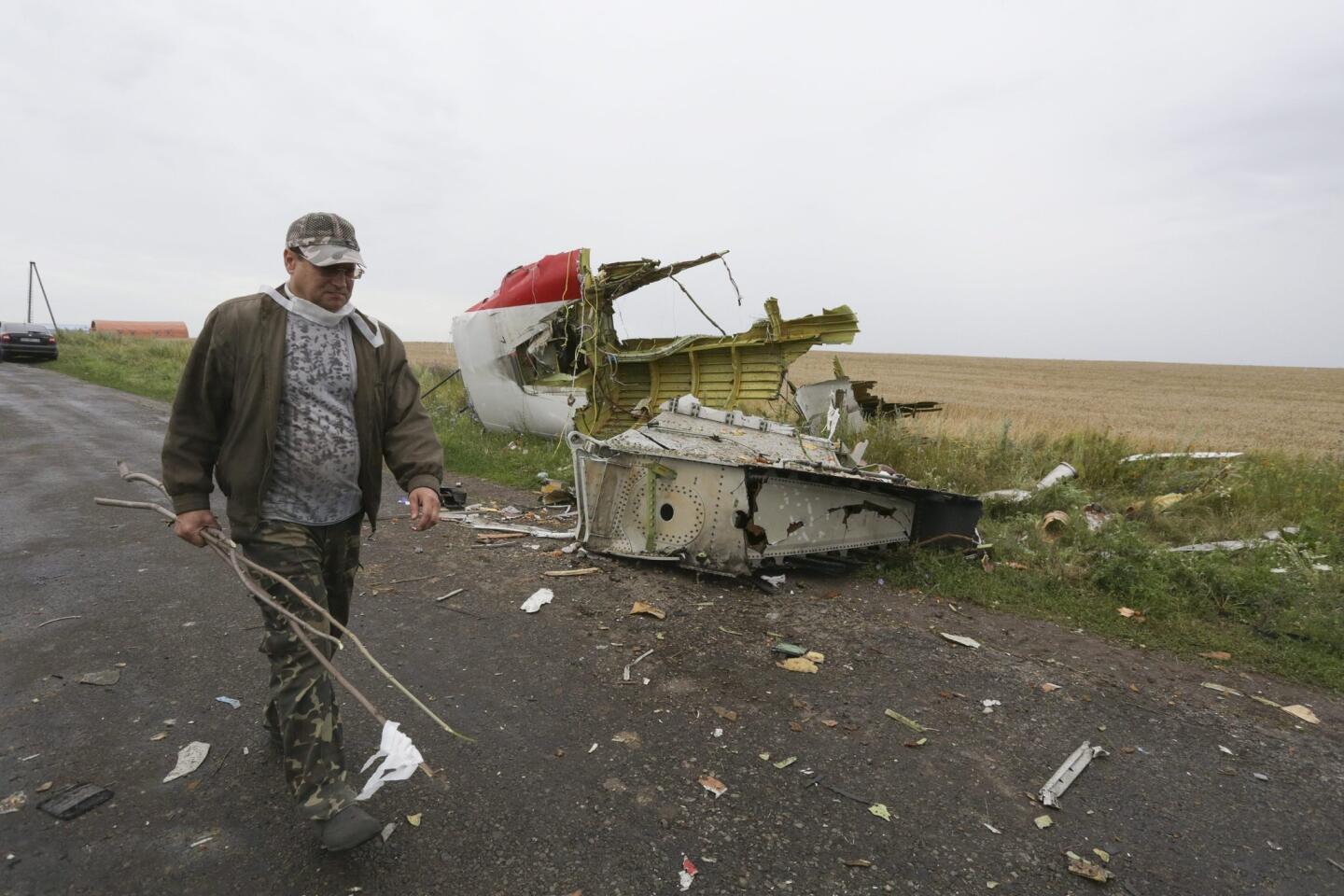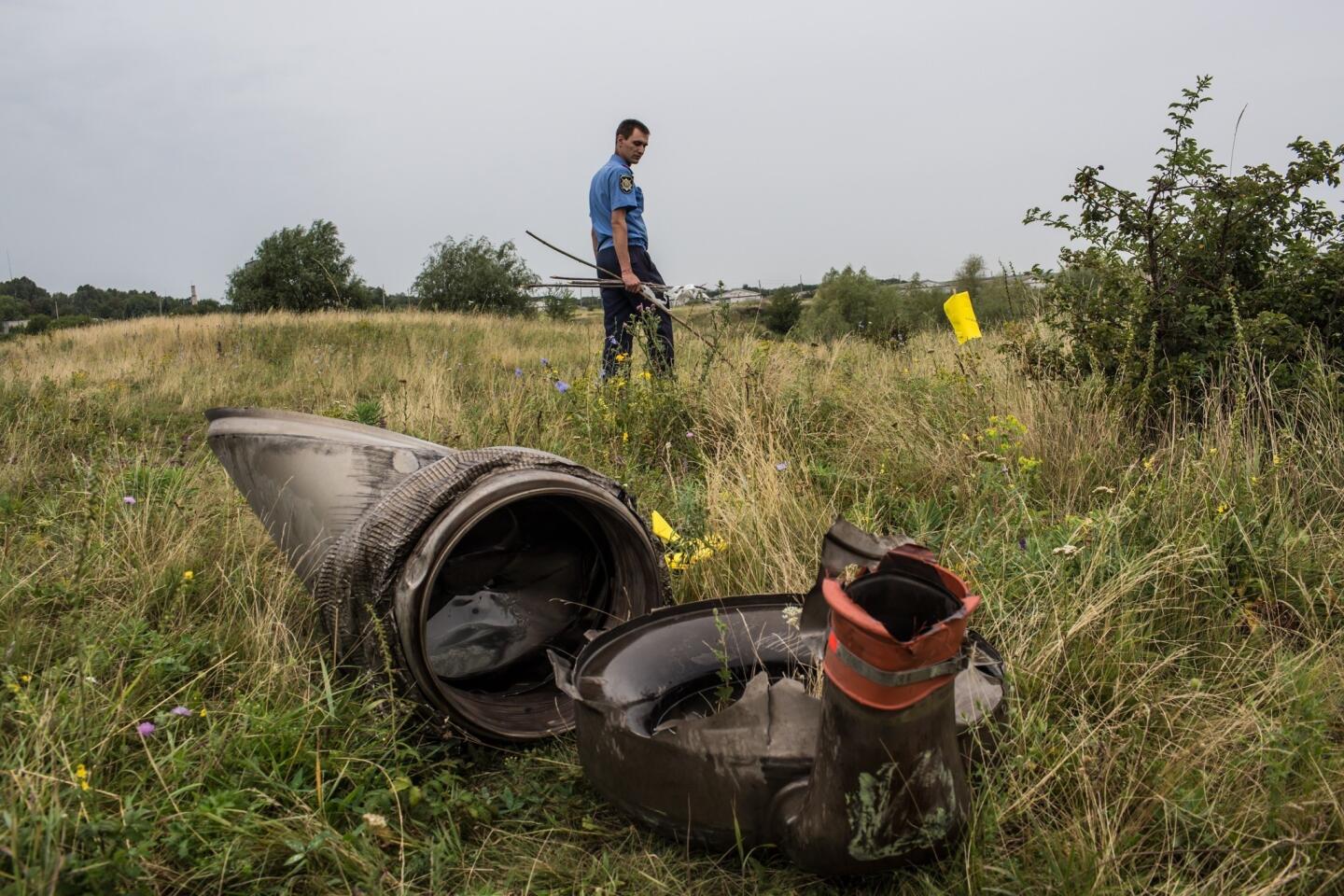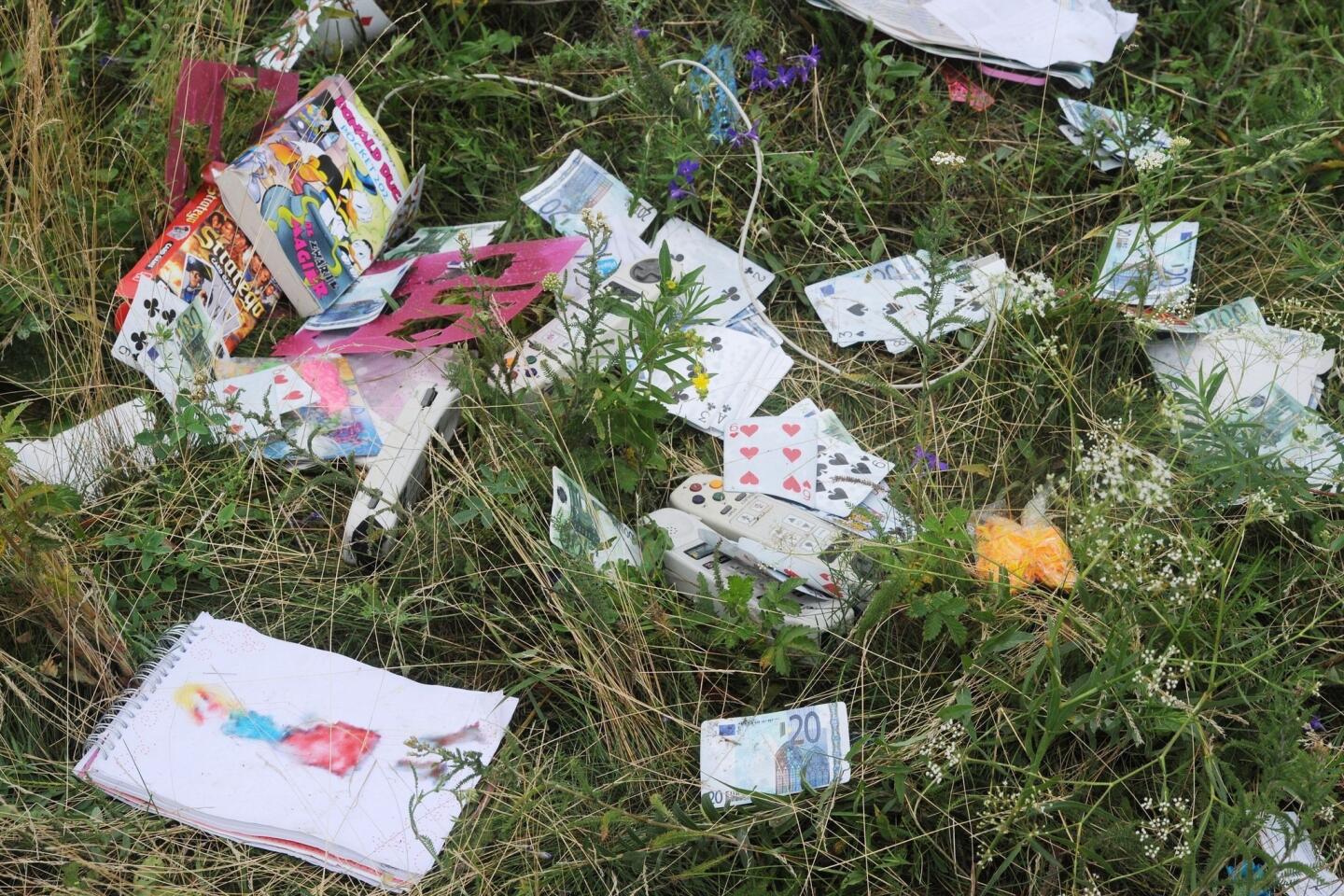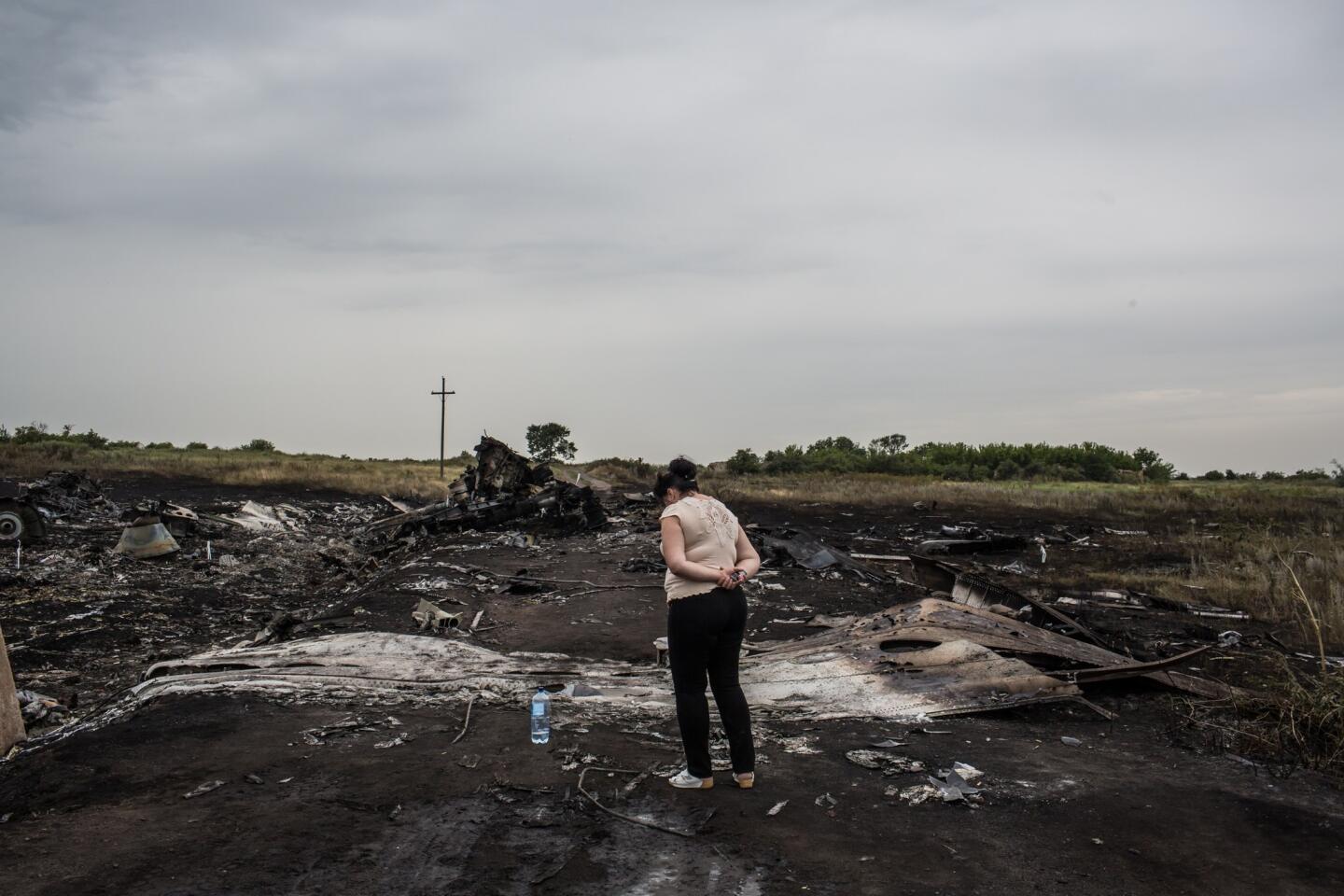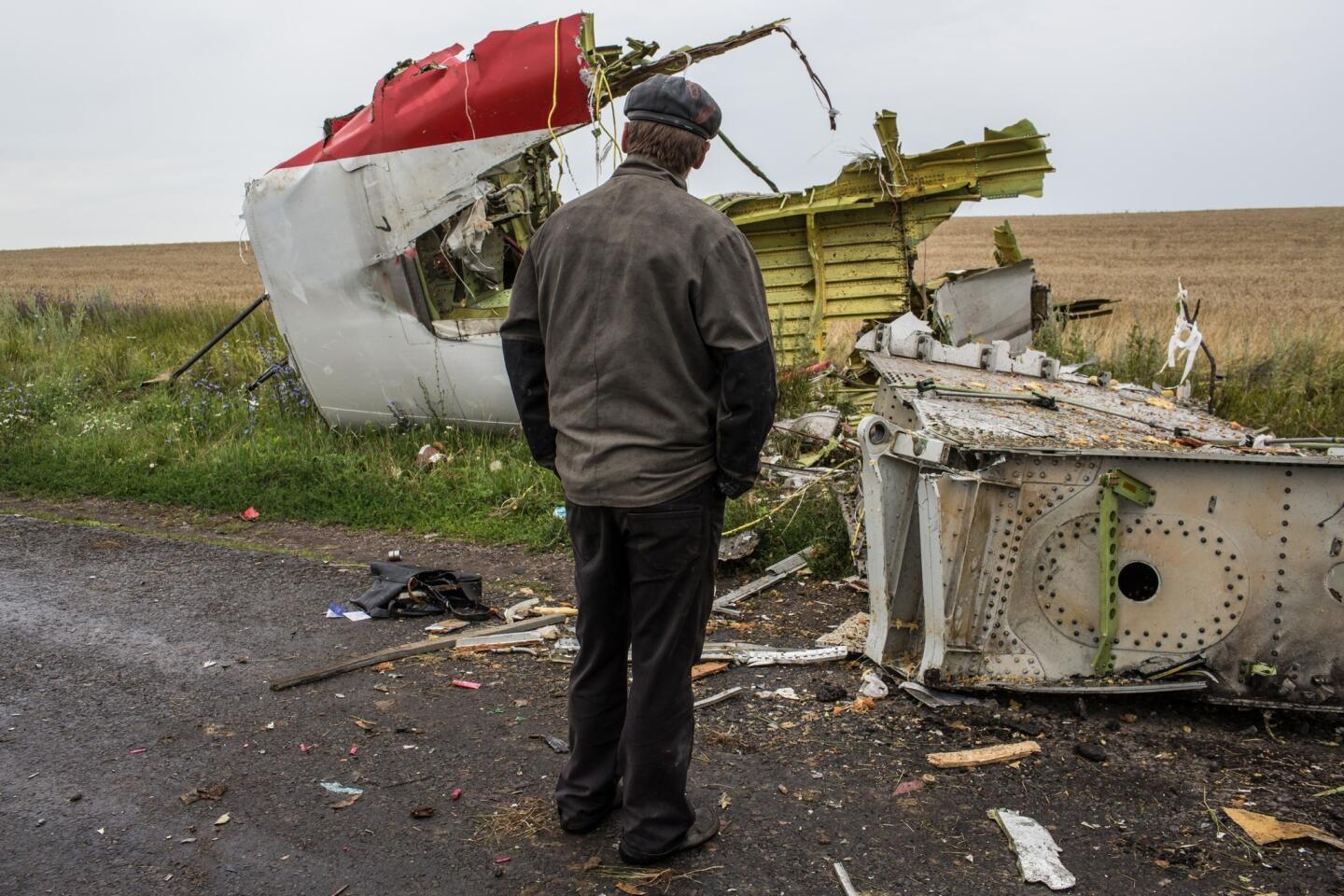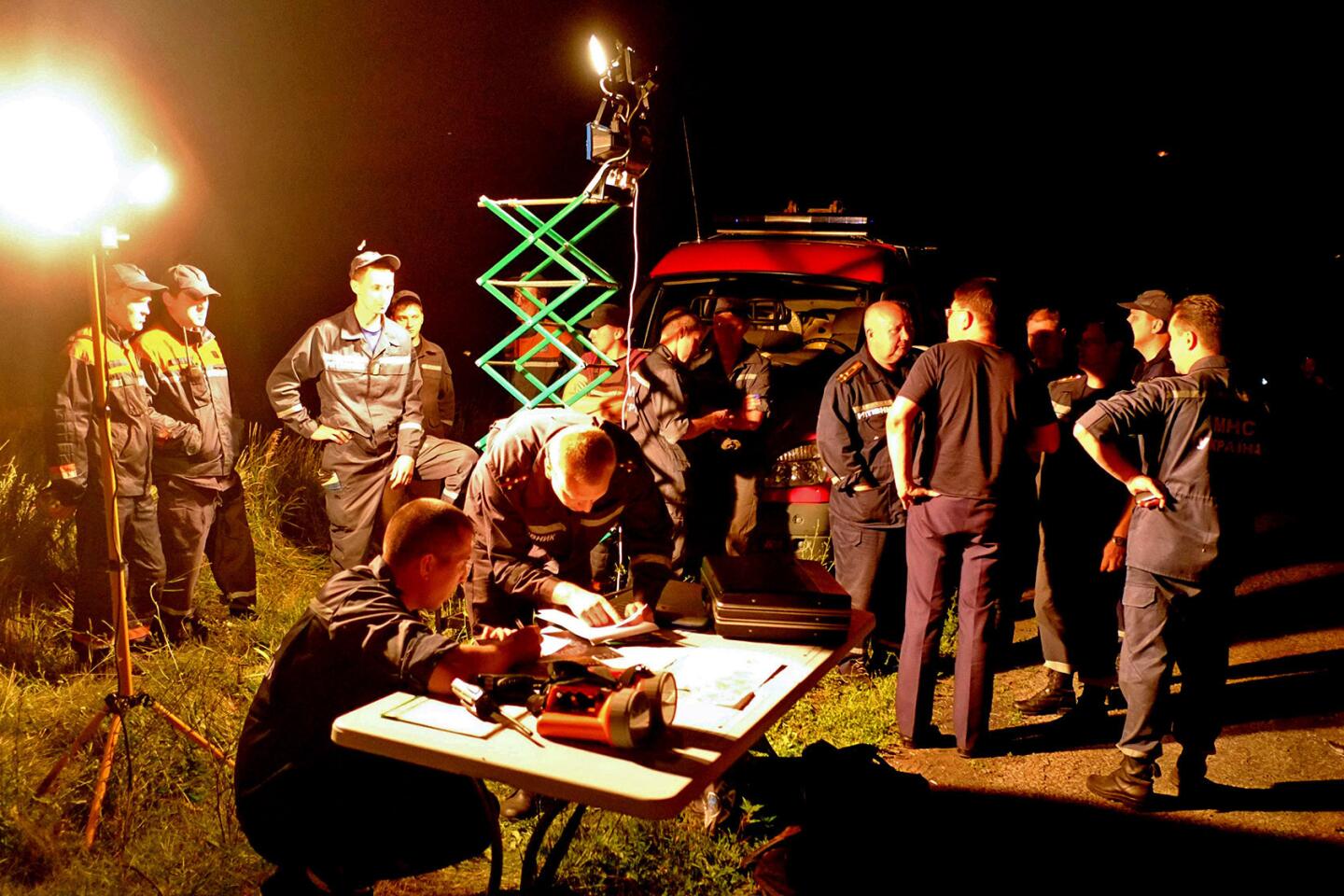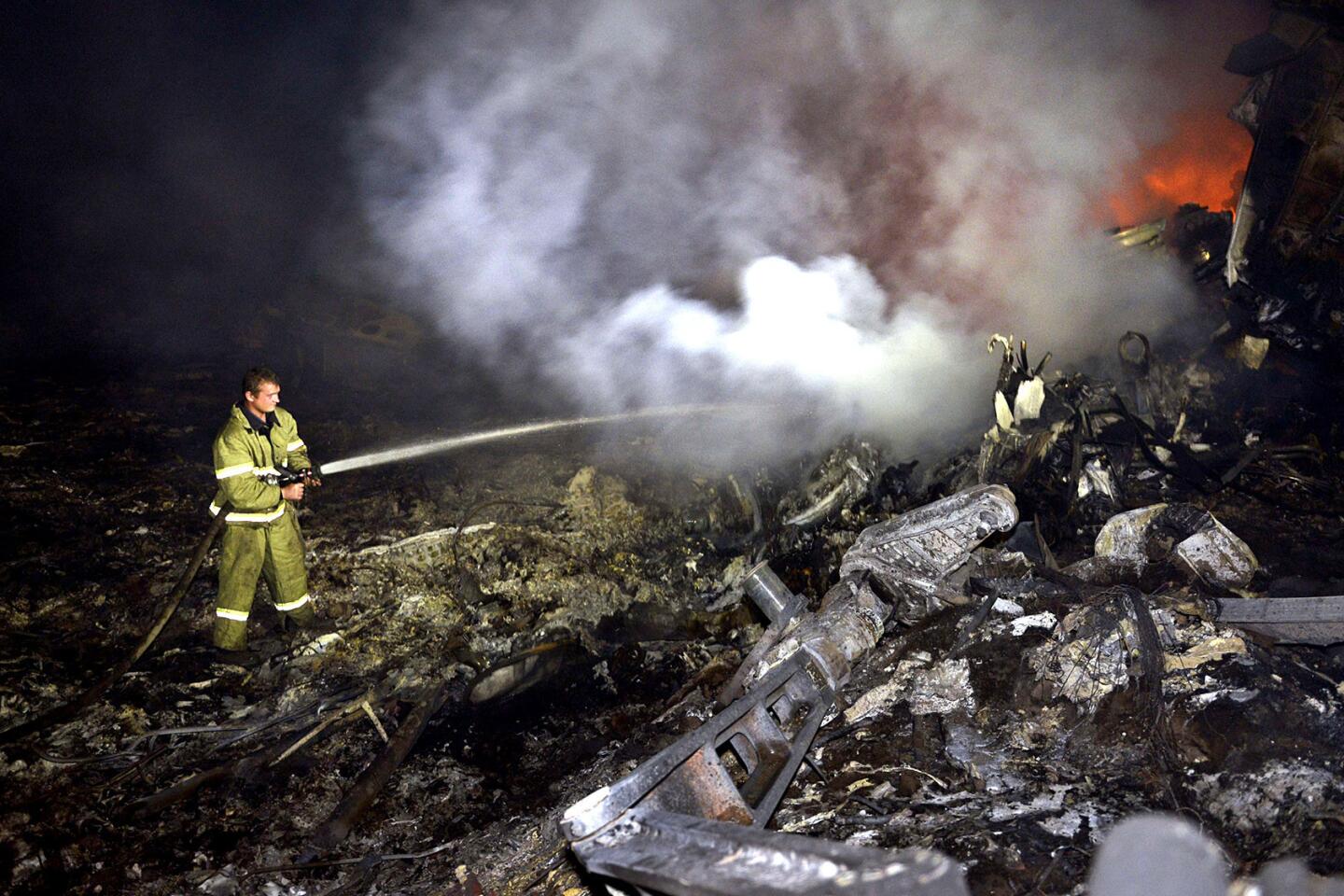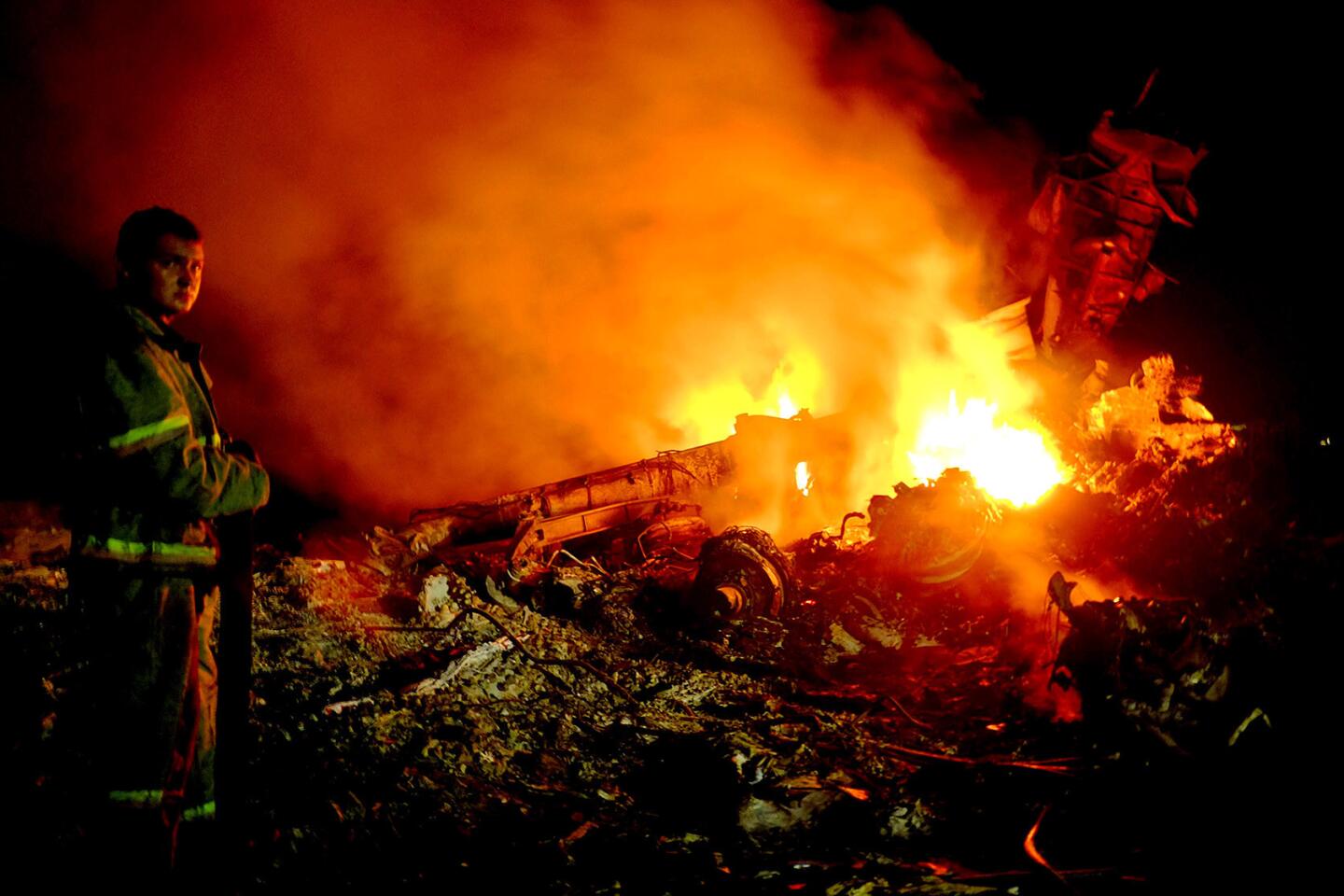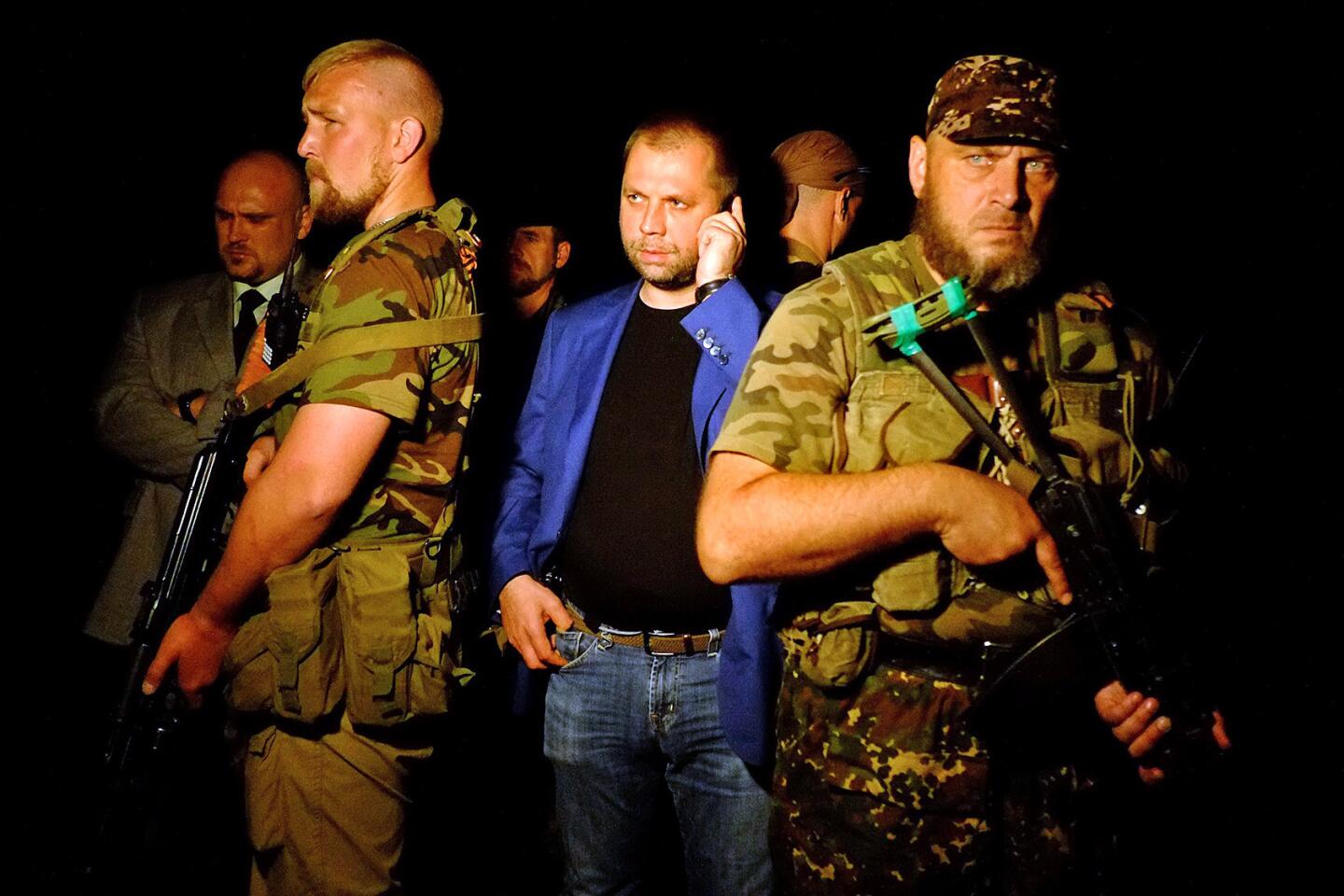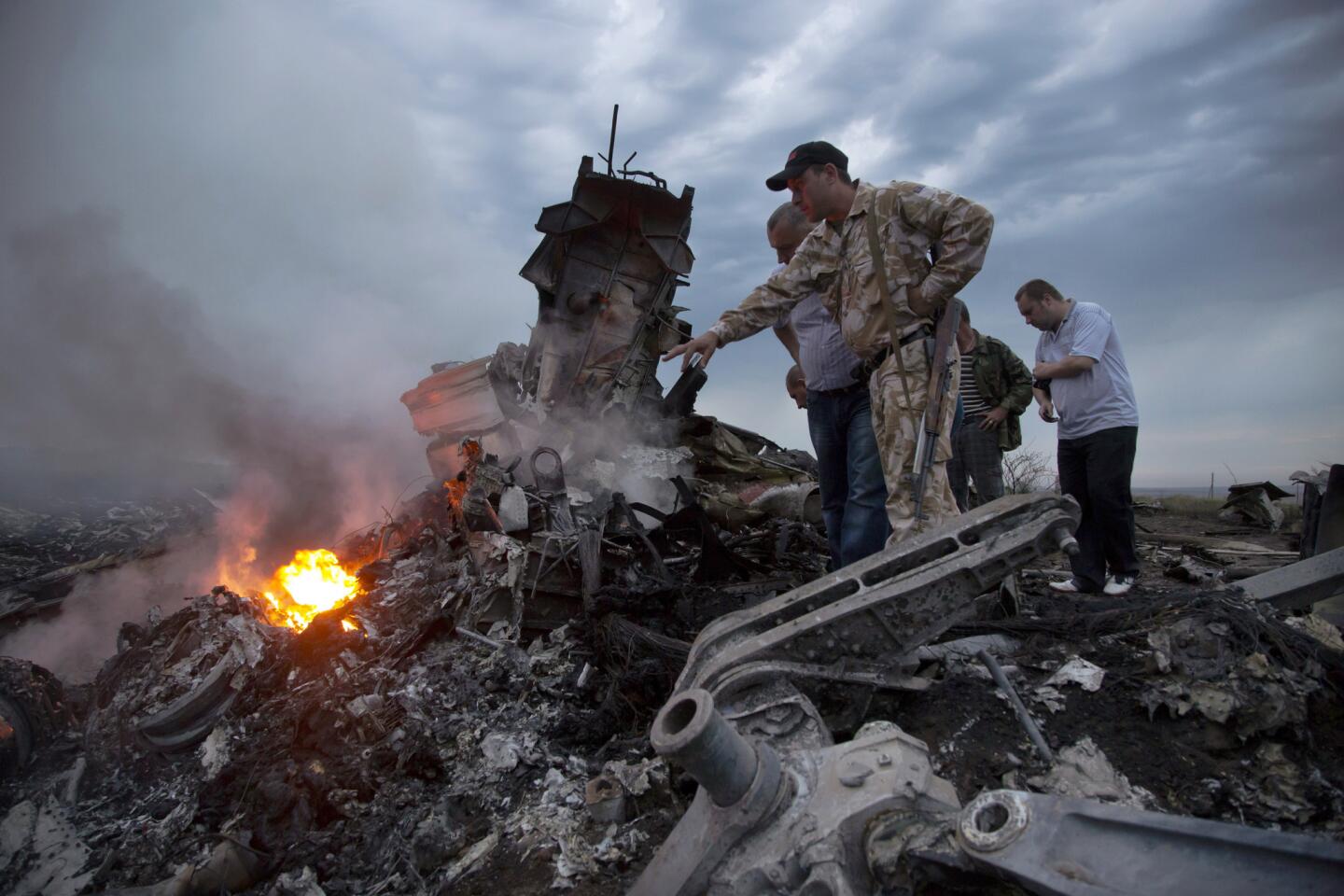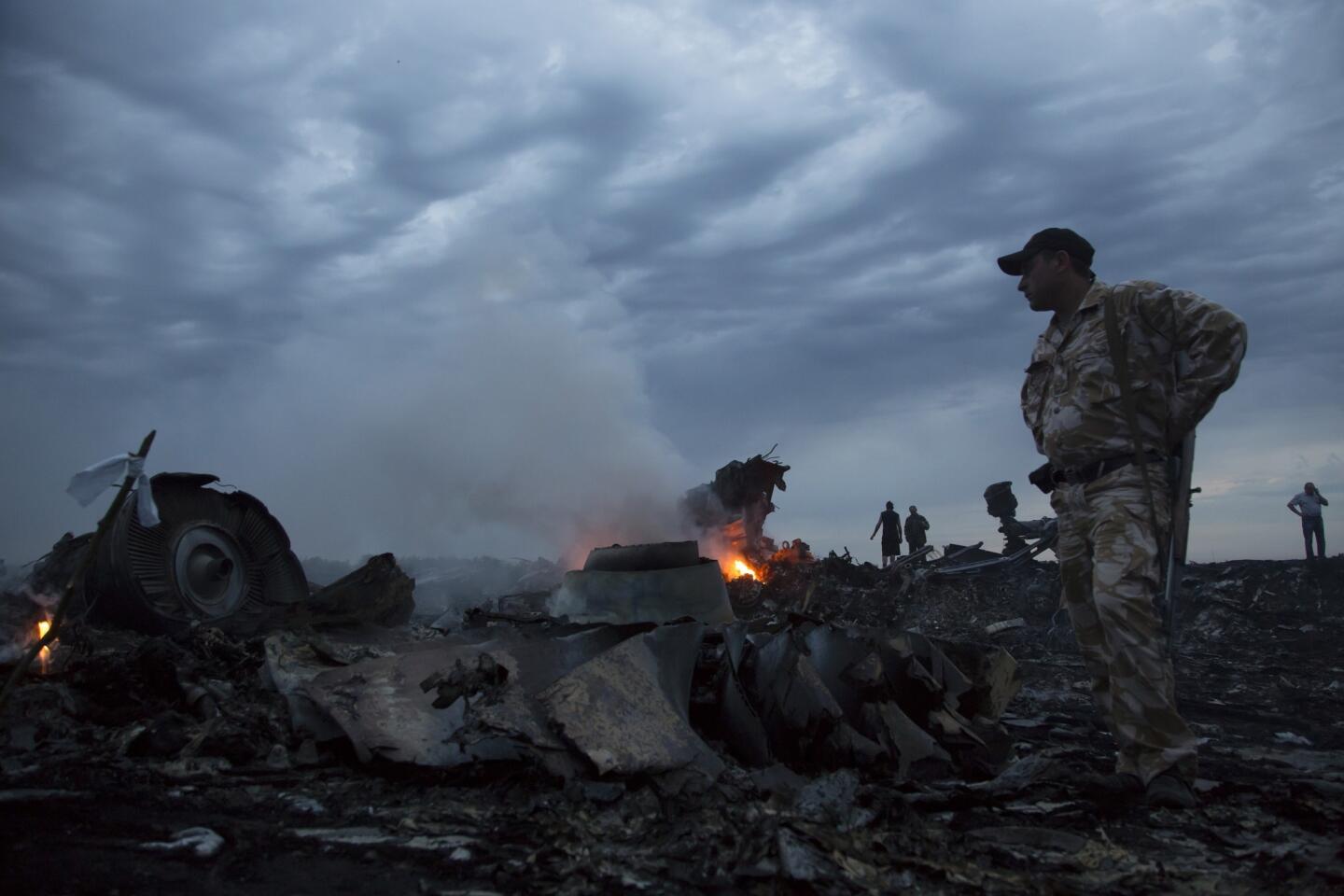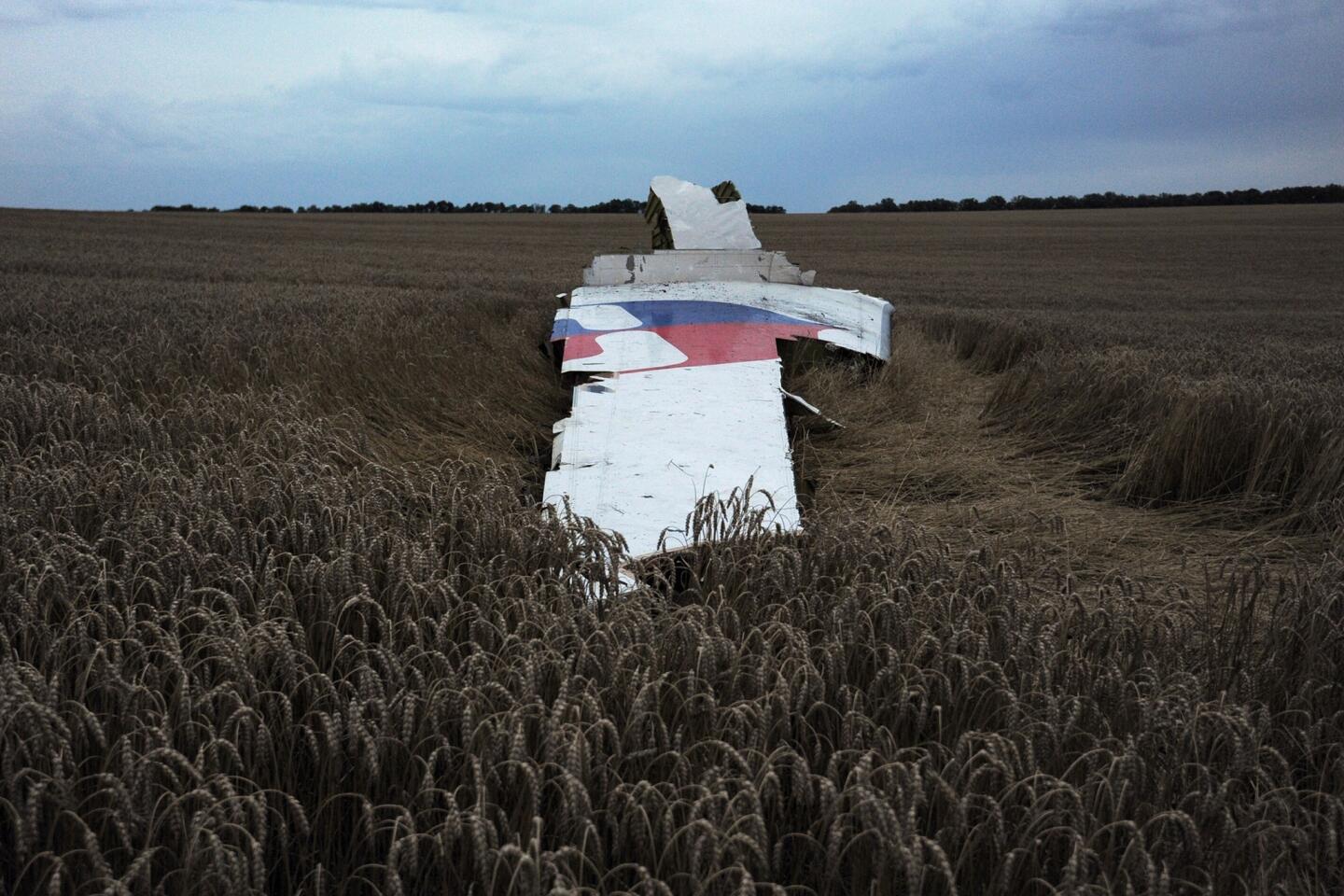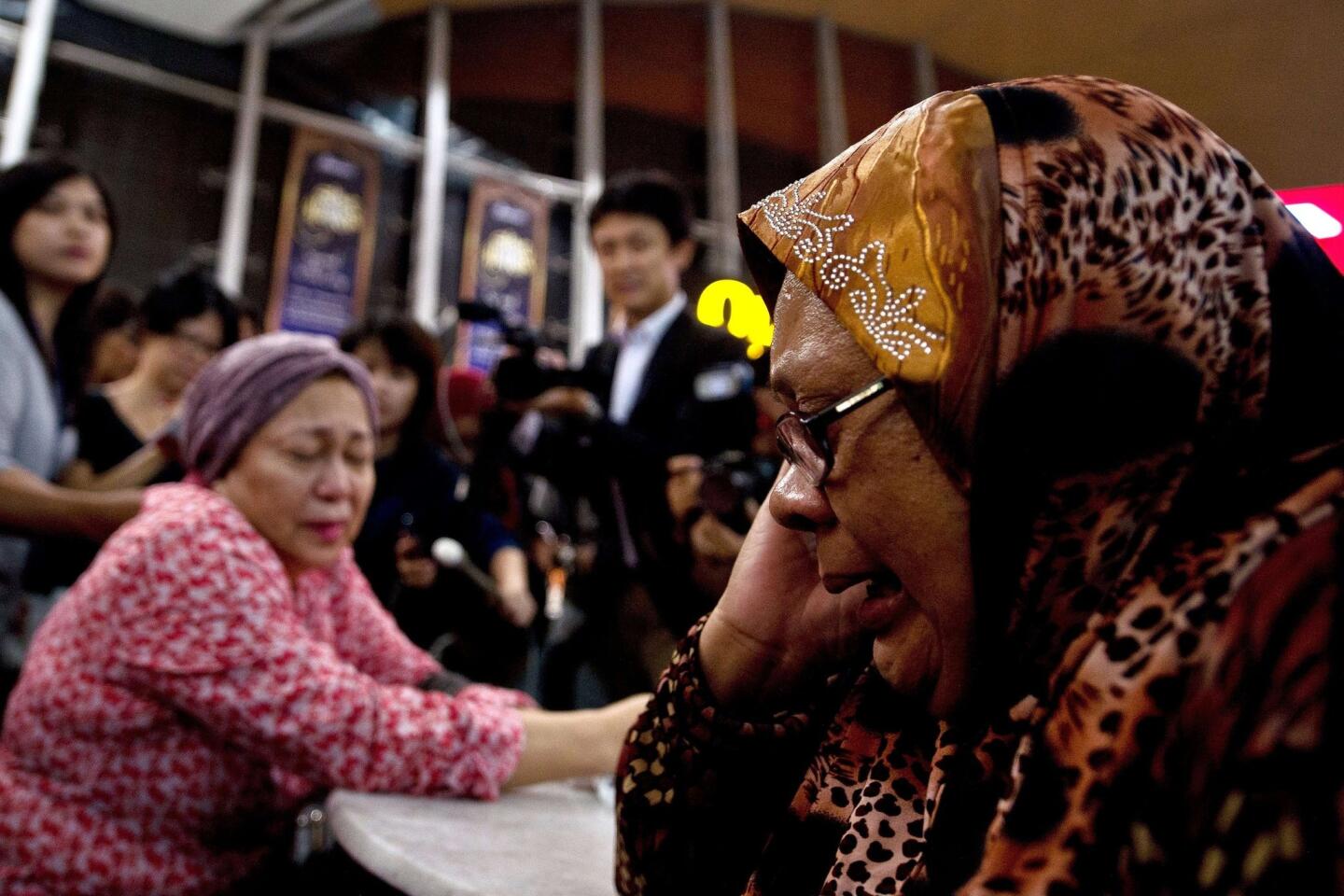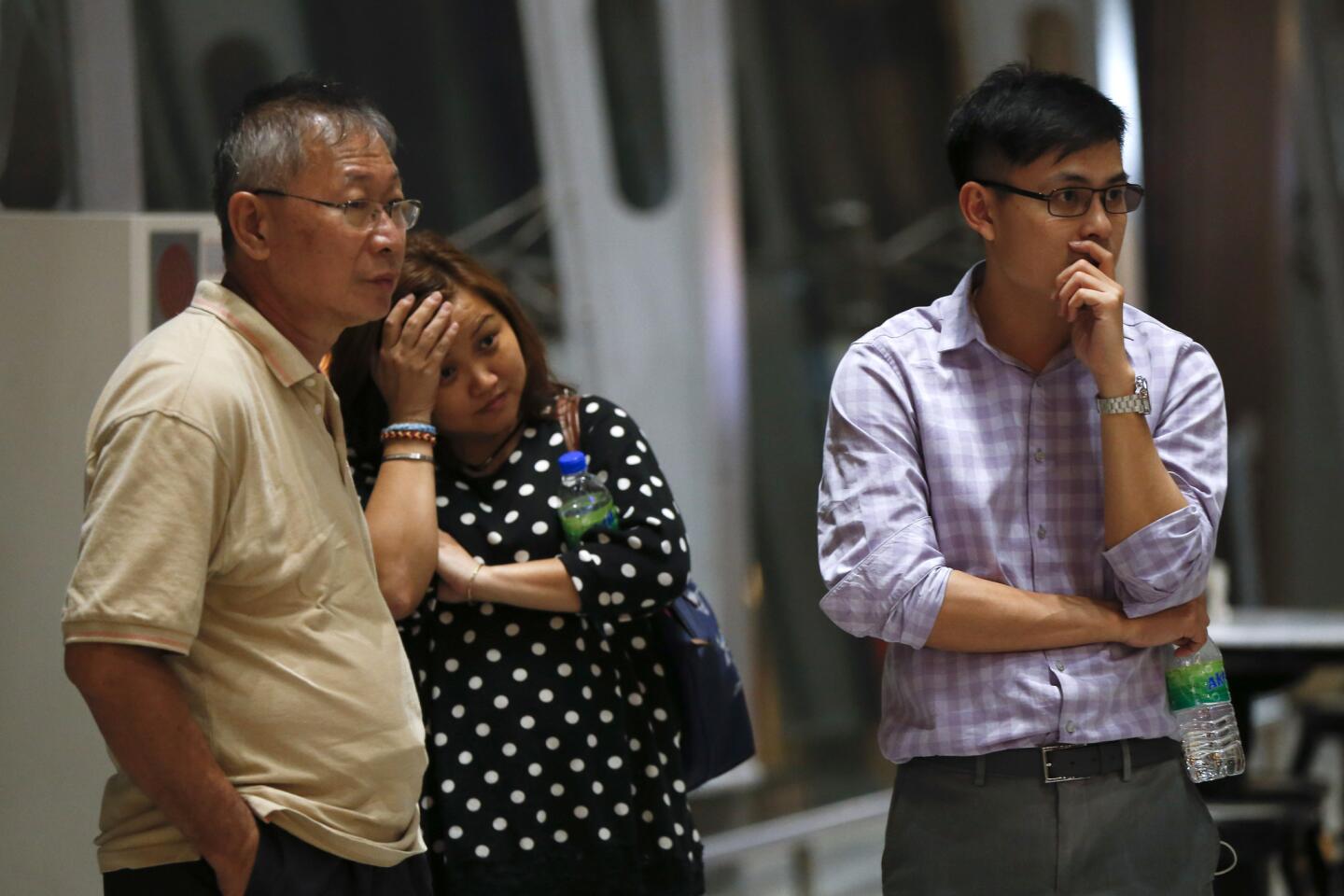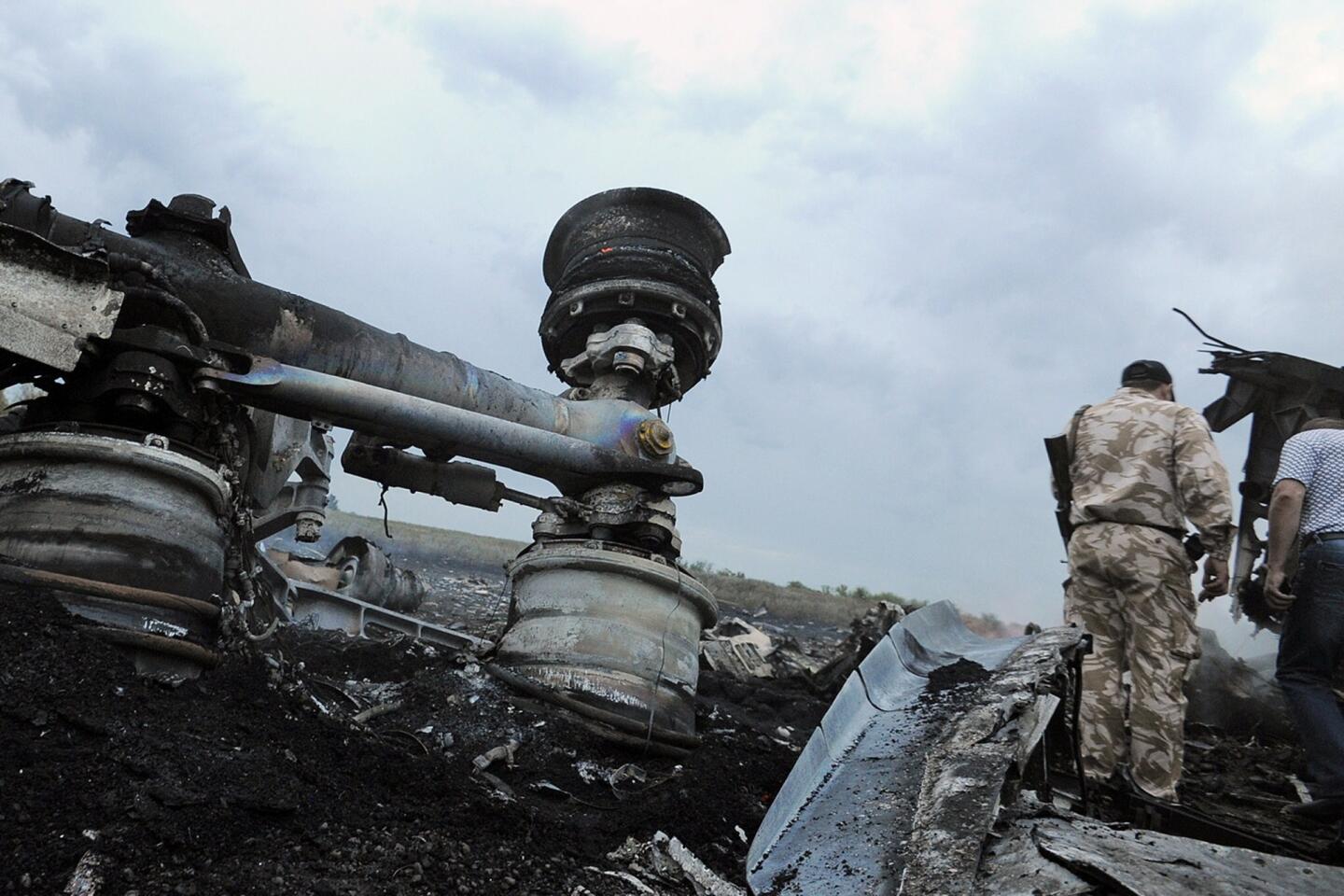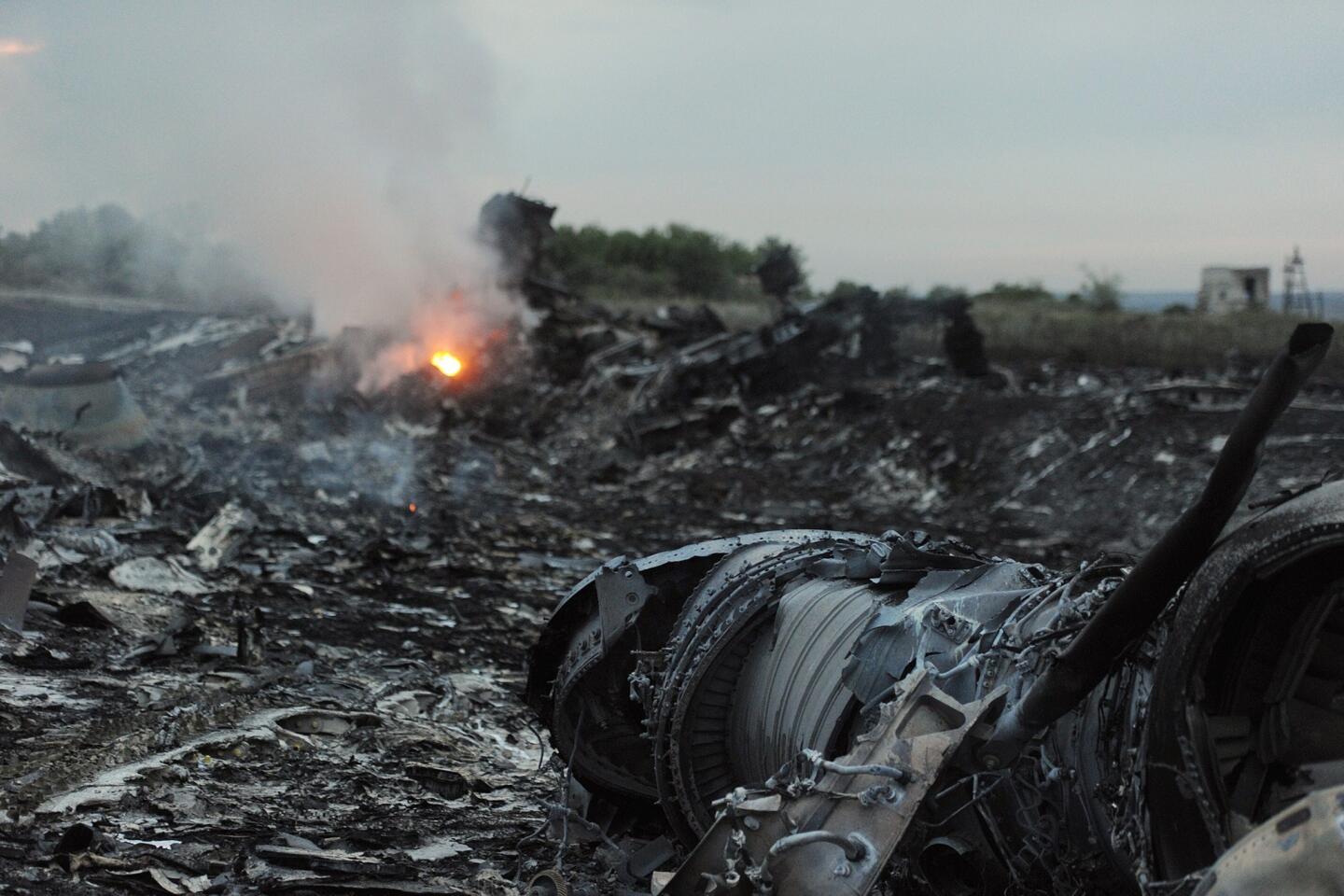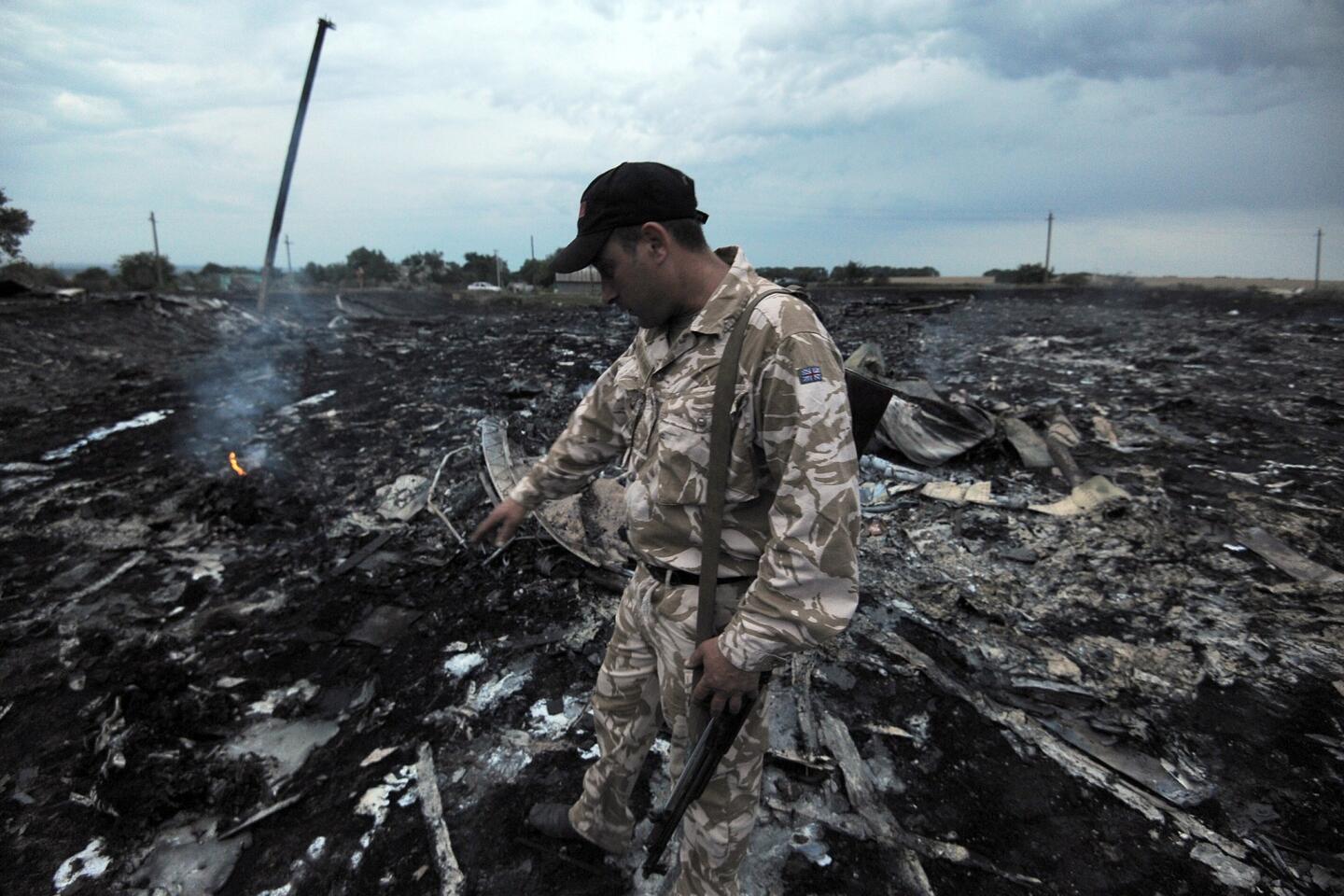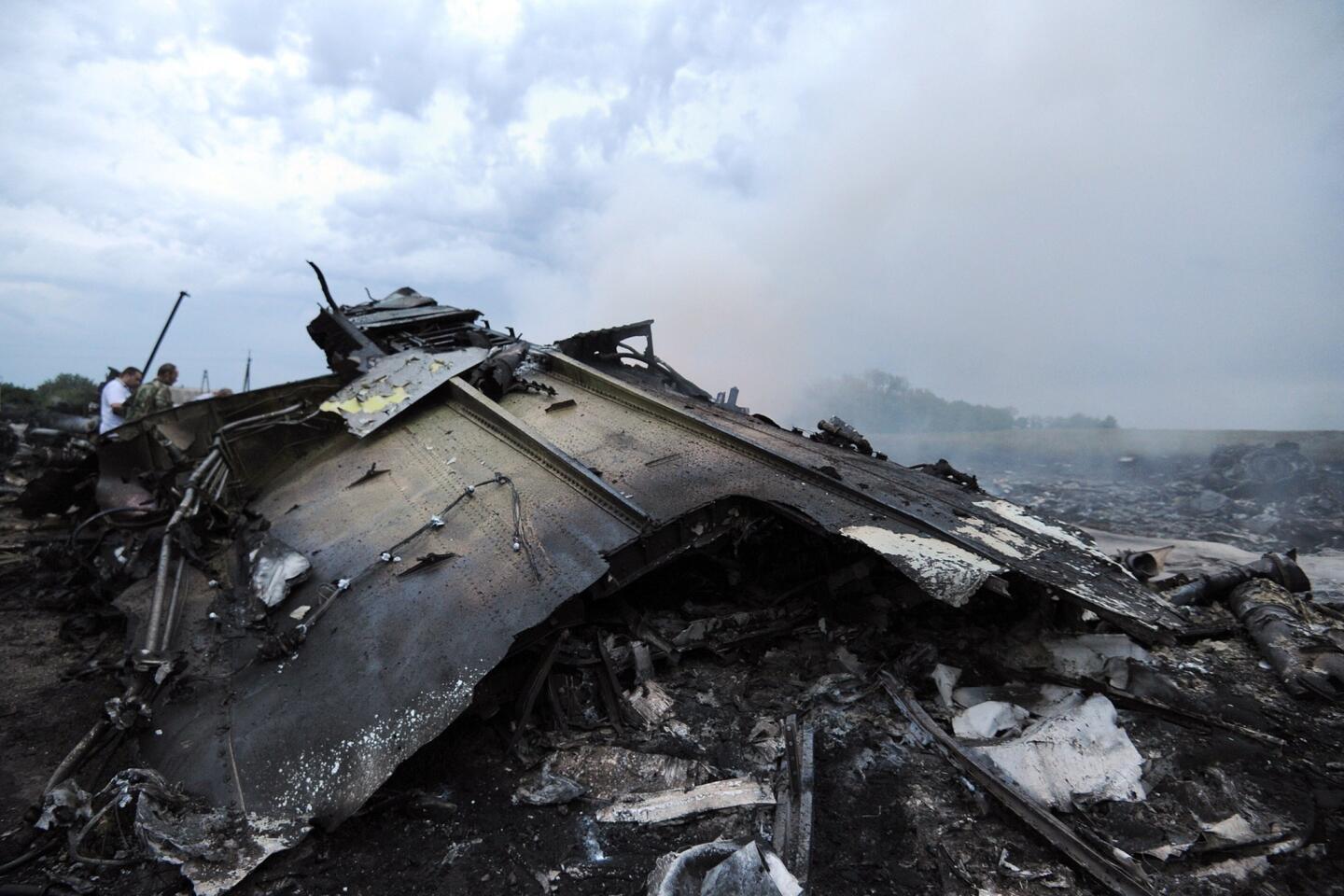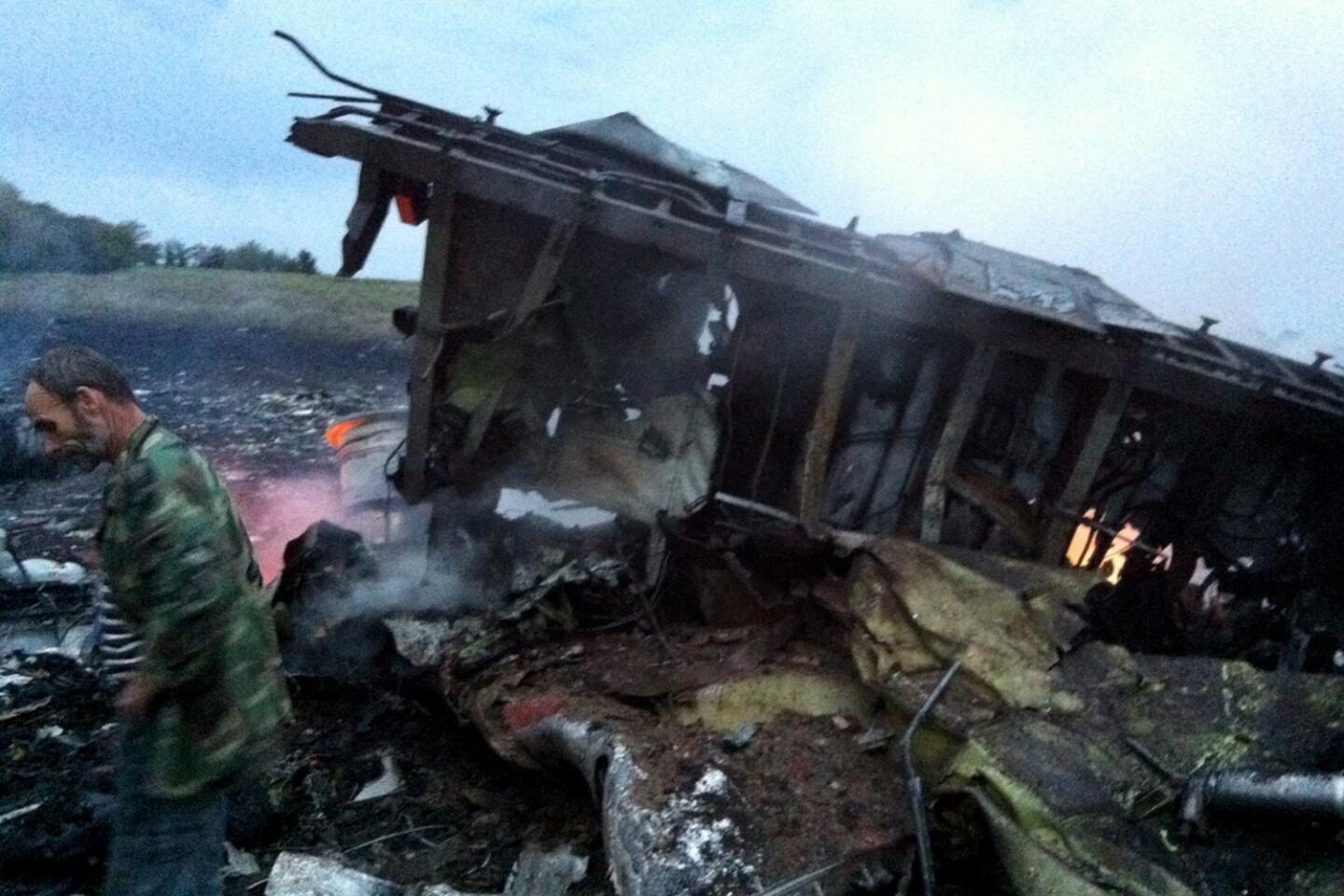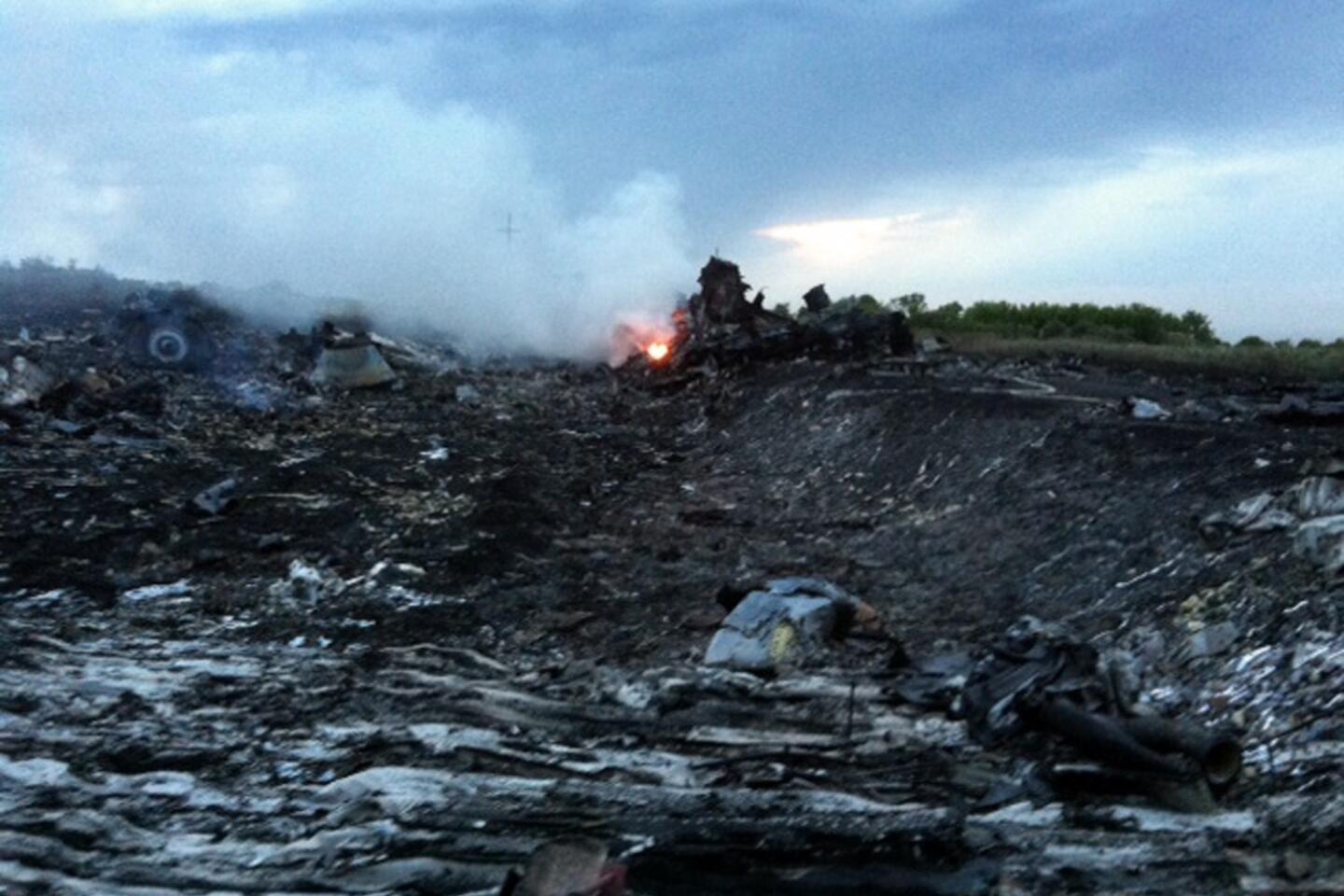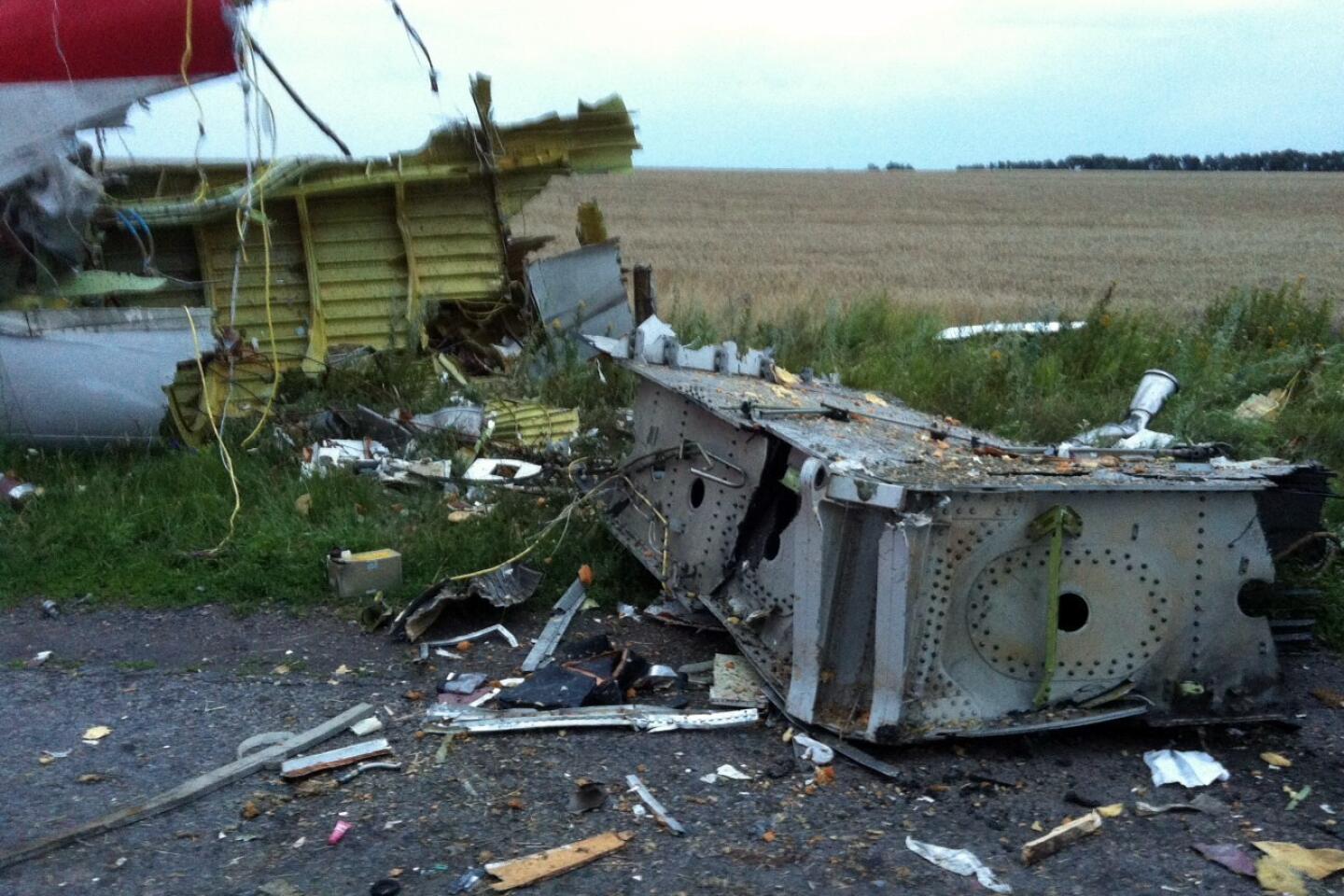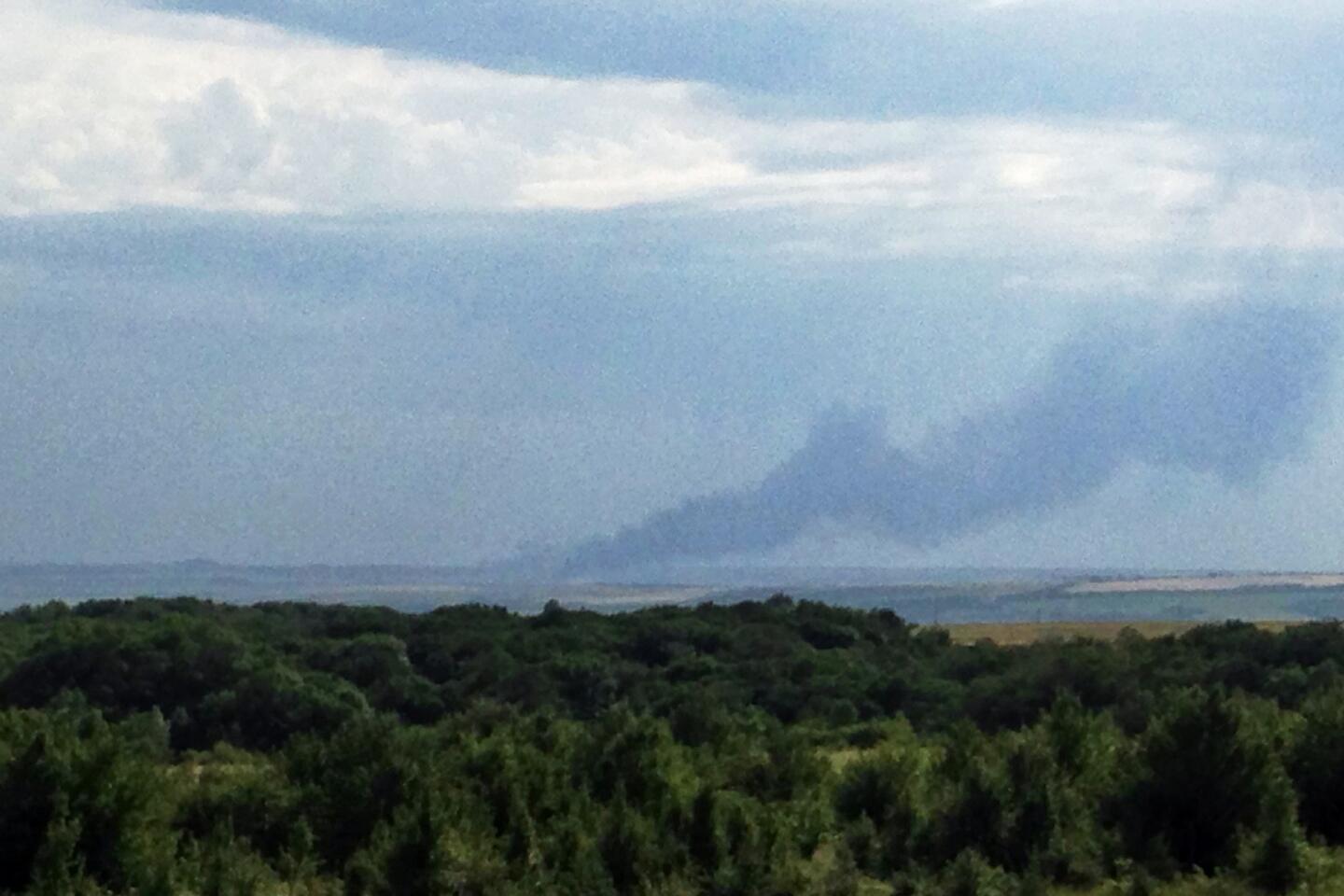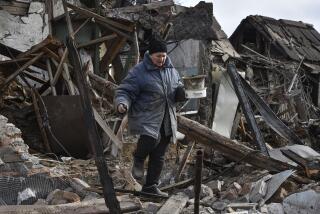Putin under scrutiny after downing of Malaysia Airlines jet
The downing of a passenger jet over separatist-controlled territory in eastern Ukraine puts Russian President Vladimir Putin in a tight spot.
What he does about it, and whether that changes the nature of the Ukrainian conflict, depends on the strength of evidence of Russian involvement, the willingness of European countries to increase pressure on him, and the potential damage to Russia’s economy.
It also depends on Putin’s considerable skills at diplomatic maneuvering.
U.S. officials on Friday said Malaysia Airlines Flight 17 appears to have been shot down by a Russian-made Buk antiaircraft system firing an SA-11 surface-to-air missile, technology that would be difficult for pro-Russia separatists to use without at least some Russian support and technical assistance.
The intelligence adds to a body of evidence widely cited by Ukrainian officials and their allies in Washington and Western Europe that the separatists are armed and trained, if not actually directed, by Russia. Some say it will change the course of the conflict.
Ukrainian Prime Minister Arseny Yatsenyuk on Friday called the shooting down of the passenger jet with 298 aboard a tragedy that would finally expose Putin’s hand behind the violence.
“The Russians have done it now,” he said.
“It seems like Putin was for the first time caught red-handed and that this horrible tragedy could become a real game-changer for the conflict in eastern Ukraine,” said Lilia Shevtsova, a senior researcher with Moscow Carnegie Center.
So far, Putin has denied involvement in the separatist uprising that has taken more than 500 lives since April. And in his first public statement about the downing of the plane Thursday, he charged that Ukraine’s offensive against the separatists was the cause of the tragedy.
Whether Russian military personnel were involved, either in training insurgents or actually operating the system, is emerging as a key question for U.S. intelligence agencies and for investigators. But evidence of Russian involvement in the conflict has been piling up for months.
U.S. intelligence reports point to overt Russian assistance in training separatists in the use of heavy weapons moved into the conflict area, like three T-72 tanks seen crossing in from Russia last month by journalists with Western news agencies.
American officials, including NATO commander Gen. Philip Breedlove, commander of the North Atlantic Treaty Organization, warned even before Thursday’s tragedy that Russia was providing the radar-guided mobile Buk system to separatists. The U.S. has also said that Russia is providing the militants with military advisors, some of whom are in Ukraine.
Ukraine’s envoy to the United Nations, Yuriy Sergeyev, said Moscow has been openly recruiting Russians to go to Ukraine to fight and has never called on its citizens to stay out of the unrest across the border. “This fact speaks for itself,” Sergeyev said.
Ukraine’s Interior Ministry late Thursday released video purporting to show the separatists moving toward the Russian border a mobile Buk antiaircraft system with one of its four rockets missing. The Kiev government suggested that the images recorded an attempt to get rid of damning evidence after it became clear that a civilian airliner had been shot down, not a Ukrainian military transport as Russian special forces veteran Igor Strelkov boasted minutes after the plane was downed.
Ukrainian officials have sought to spotlight the suspicion that Russia played a role in the disaster to stir international outrage. Anton Gerashchenko, an advisor to the Interior Ministry, posted an image on Facebook of an infant who died on the plane and, addressing Putin, wrote, “This baby’s death is on your conscience.”
Putin must be mindful of the damage to the Russian economy as a result of the tension in eastern Ukraine, and his annexation of the Crimean peninsula that preceded it.
Western sanctions, which were toughened just the day before the passenger jet was shot down, have been narrowly targeted but inflicted substantial damage on the Russian economy by chasing away foreign investment and business capital.
The economy is poised for zero growth this year, down from forecasts of nearly 3% before the Ukraine crisis, and at least $75 billion was taken out of the country in the first six months of 2014, spurred by fear of more international punishment to come. Second-quarter capital flight slowed from the first three months of this year, but the first half’s drain on resources already exceeds all of 2013’s, when $62 billion was pulled out of the country.
Russian stocks and the ruble have also lost more than 10% of their value this year, cutting into consumers’ buying power and savings, threatening to erode Putin’s popularity, which soared after the annexation of Crimea.
Still, there is room to maneuver for a leader who in the last year defused possible U.S. airstrikes on Syria by brokering a deal to eliminate its chemical weapons, and temporarily eased tension over Ukraine by pulling troops back from its border.
“Putin still has room for maneuver granted to him by the obvious lack of resolute Western response” to his actions so far, Shevtsova said.
Analysts say they’re not sure which way he’ll go. It may depend partly on the response of European leaders. Most of the dead on the Malaysia Airlines flight were Europeans: 189 from the Netherlands and 17 from Britain, Germany and Belgium.
Some analysts say that unless there is categorical proof of a Kremlin hand, the evidence might not be enough to build agreement on a step that would seriously hurt the Russian economy: a boycott of Russia’s vital energy exports.
European customers for Russia’s natural gas have been reluctant to cut off imports and create their own economic problems.
“There is a lot of talk about this being game-changing and a catalyst for tougher sanctions. But it may be hard to get a very clear picture of what happened,” said Christopher Chivvis, a senior political scientist at Rand Corp.
The separatists may have acquired the Buk systems when they raided Ukrainian arsenals, and the militants’ initial reports claiming to have shot down a Ukrainian transport may attest as much to their lack of training with the weapons as it does to Russian assistance, Chivvis said.
Francois Heisbourg, chairman of the International Institute for Strategic Studies and a former French government official, said that “a big hardening of the line” on European sanctions would follow if separatists with Russian complicity were found responsible for the plane disaster.
Other experts on Russian affairs warned, though, that Putin is as unpredictable as he is adept at manevering out of corners.
Steven Pifer, a former U.S. ambassador to Ukraine now at the Brookings Institution, said Putin has already accomplished what he wanted in getting Kiev to agree to decentralize power, respect Russian language use and renounce pursuit of NATO membership. But he said that any prediction that Putin would back off on his support for the separatists would be “a total guess.”
Loiko reported from Moscow, Williams from Los Angeles and Richter from Vienna. Times staff writers Tina Susman at the United Nations, Steven Zeitchik in Kiev and David S. Cloud and Kathleen Hennessey in Washington contributed to this report.
More to Read
Start your day right
Sign up for Essential California for news, features and recommendations from the L.A. Times and beyond in your inbox six days a week.
You may occasionally receive promotional content from the Los Angeles Times.
